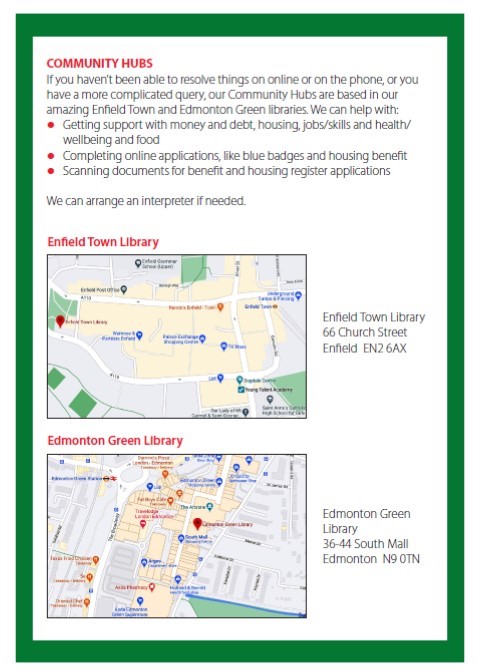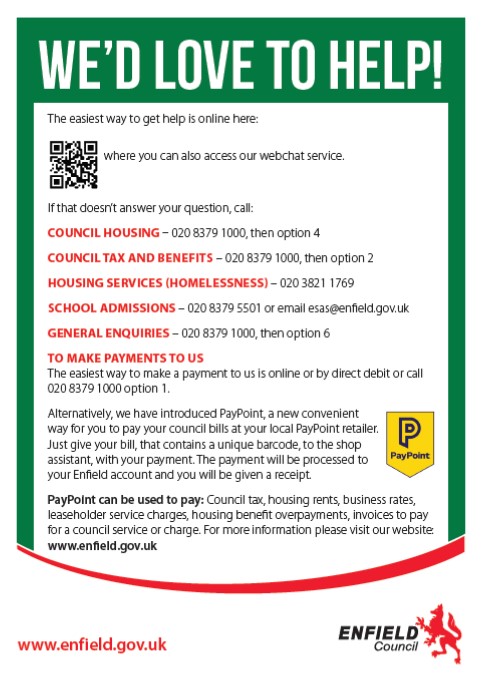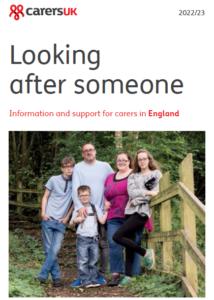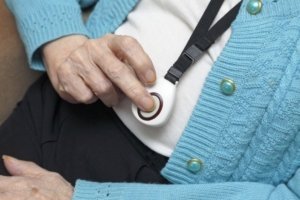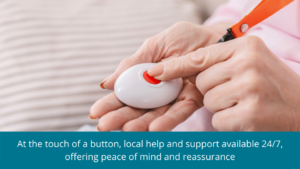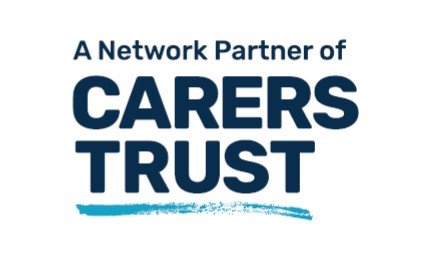FAQs – General Carers Topics
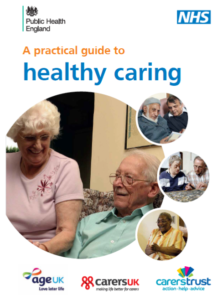
This helpful advice booklet will be useful for all carers, but is particularly targeted at those who are about 65 years older and are new to caring.
It includes information on getting help, getting an assessment, looking after your own health, taking a break and how you can use technology to support you, with links to further information and support.
A practical guide to healthy caring
Author: NHS England, Age UK, Carers Trust, Carers UK, Public Health England and older people themselves
The Carers UK Looking after someone guide is divided into the following sections: getting help and support, your finances and your work.The guide includes:
- A carer’s guide: an illustrated introduction to the challenges of caring, from making difficult decisions to looking after your health and wellbeing.
- Benefits: an overview of which benefits you or the person you care for may be entitled to and information about how to get a benefits check.
- Other financial help: including help with council tax, fuel costs, pensions and health costs.
- Practical help: including community care assessment, arranging a carer’s assessment and direct payments.
- Technology: information about health and care technology that could make life easier for you and those you care for.
- Your workplace: your rights at work, from flexible working and parental leave to protection from discrimination.
- Other help: how to find other help nationally and in your local community.

There is a series of pages on the Carers Trust website which provides tailored advice and information on caring for people with specific conditions.
Conditions covered include: dementia or Alzheimer’s disease; learning disabilities; alcohol or substance misuse issues; and mental health problems.
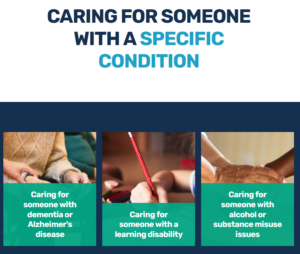
If a person’s needs are health-related then their support should be provided by the NHS, not social services. There is a difference between having a health need and having a disability/illness that impacts on social needs such as washing, dressing etc…During their assessment, if a social worker identifies someone who has a health need, they will usually then arrange for a screening assessment to be performed if they believe a service user might be eligible for Continuing Care funding, which is funding provided by the NHS for the nursing part of their care needs.
For example, if a person suffering dementia will try to swallow objects that they grab and have the potential to be violent then they would probably qualify for CHC as their care requirements involve much more than simply meeting their social needs. However, if their dementia then progresses and they become bedbound and withdrawn then their needs consist mainly of being kept clean, safe and nourished; therefore, their care now would fall within the parameters of social care. Their condition may have worsened from a medical point of view but their care needs have lessened in their complexity and unpredictability so the responsibility of meeting them would change from NHS to Social Services.
People being discharged from hospital often have the screening performed as part of their discharge planning. If so it is performed by the multi-disciplinary team who attend hospital discharge meetings.
The next stage is for a team of experts such as a Social Worker, Specialist Nurse Assessor and a nurse/care worker), to use a Decision Support Tool (DST) to determine the level of health needs a person has. If a person “scores” as having high level needs this could be an indicator that they qualify for Continuing Care Funding; however, if it can be argued that their needs are complex and unpredictable this also could make them eligible.


How do I Request a Continuing Care Assessment?
If you would like to apply for continuing healthcare funding or have an enquiry, please contact the Continuing Healthcare Team at NHS Enfield Clinical Commissioning Group (CCG):
Continuing Healthcare Team
Enfield CCG
Holbrook House
Cockfosters Road
Barnet, Herts
EN4 0DR
Tel: 020 3688 2174
Email: chc.enfield@nhs.net

The Deaf Community can download the InterpretersLive! app available on Apple and Android stores.
Link to information on website: InterpretersLive! App
The London Taxicard Scheme gives subsidised rides to Enfield residents of all ages who have serious mobility problems or sight impairments.This allows people with difficulty using public transport to get out and about in licensed taxis and private hire vehicles.
On the Enfield Council web site, search Concessionary Travel and London Taxicard Scheme.
- Form can be completed online for you or someone else.
- If you are applying for someone else, the form will ask for your details, then the applicant’s details.
- For filling in the form you will need date of birth and NI number of the applicant.
If your application is successful, the Council will require a photograph of the applicant.
They will contact you shortly after your application with details on how to upload this.
You will need to provide proof of identity, address and any benefits received by the applicant.
Some benefits or conditions automatically allow eligibility.
Enfield Council aims to process your application within twenty working days of receiving the information required.
Taxicard holders in Enfield can receive up to eight subsidised trips per month.
If you’re unable to complete the online application form, you can get help by visiting Enfield Civic Centre or Enfield libraries.
You can also contact Customer Services on 020 8379 1000 to arrange for Concessionary Travel to call you to help complete the form.
If you are a carer registered with Enfield Carers Centre we can help you to complete the forms. Call: 020 8366 3677 or email: info@enfieldcarers.org for more information.
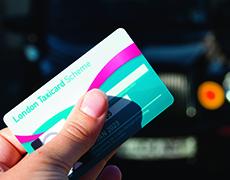
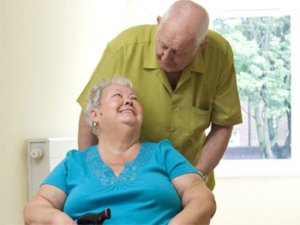
Visit the gov.uk site and complete the online form.It is useful to have an email address that is regularly checked, as this is the quickest way for the Council to contact you.
Supporting documentation can be electronically attached by uploading from the computer on which you fill out the online form.
If possible, take photos of the required documents and transfer them to the computer you use for the form (email or plug in).
If you have a printer that can also scan, this is a good way to capture the documents.
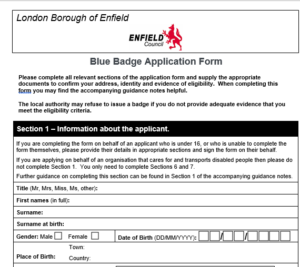
A Blue Badge costs £10 in England and usually needs to be renewed every 3 years.
It can take 12 weeks for a decision to be made.
Contact Enfield Council for any questions or reassessments.
You will need:
- An electronic head shot photo of the person who will own the Blue Badge is also required to be uploaded.
- Proof of identity can be one of driving licence, passport or birth / marriage certificate
- Proof of address needs to be one of council tax bill or letter from a government department.
- Proof of any benefits e.g. PIP or DLA including the mobility assessment
You’ll also need to know:
- your National Insurance number (if you have one)
- the details of your current Blue Badge (if you’re re-applying)
- the medication for the person who will own the Blue Badge
- the names of medical professionals and clinics attended by the applicant
- the medical terms for the conditions suffered, ideally in correspondence from a clinic or medical professional.
Are you or the person you care for Eligible for a Blue Badge?
If you or they have:
Either: A physical diagnosis that means they are unable to walk short distances (0 to 80 meters, about 7 bus lengths); as they are physically unable to walk, experience extreme pain, server breathlessness or a high risk of falling.
Or: A cognitive/mental health diagnosis that means they lack danger awareness or have unpredictable behaviours that may cause risk to self or others, or experience significant psychological distress
And they have evidence of recent surgery, attendance at specialised clinics or a medical history of experiencing pain, breathlessness, falls, challenging behaviours and/or significant psychological distress to support application
Then they may meet the eligibility criteria.
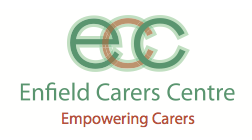
If you/your loved one meets the above criteria call Enfield Carers Centre on 02083663677. If there is a reasonable chance the application will be successful, we will arrange for a member of our team to support you to apply.
If you/they do not meet the criteria, we will be unable to help you with an application.
There is also help available to complete online forms at the following libraries:
- Edmonton Green Library
- Enfield Town Library
- Ordnance Unity Centre Library
- Palmers Green Library
How to keep your Blue Badge safe
“Blue Badge companion permits” are available f that can be put inside a car when it is in disabled place outside a person’s house. It is proof of eligibility but useless to thieves.
You can apply for a Blue Badge Companion Permit from the Parking Shop in Crown Road, Enfield. You will need relevant documentation e.g. presentation of the Blue Badge, log book and a utility bill.
Look at the Enfield Council website for companion permits: Parking permits | Enfield Council
You can visit The Enfield Council Parking Shop Monday to Sunday, from 7am to 7pm or contact them on 020 3856 0036 (Monday to Sunday, from 7am to 7pm).
When parking elsewhere, you have to display the Blue Badge as usual, but you can buy a Blue Badge protector that locks onto the steering wheel, from car accessory shops e.g. Halfords.
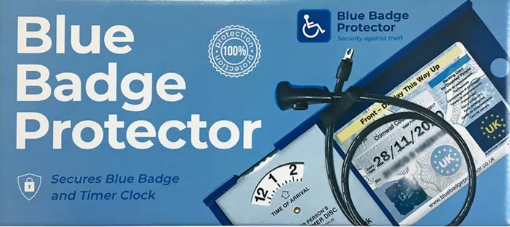
You can call the Enfield Civic Centre on 020 8379 1000 between 9am and 5pm, Monday to Friday.
You can call the Enfield Adult Social Care team on 020 8379 1001 at any time 24 x 7.
Enfield Carers Centre works alongside with many local organisations to provide a comprehensive support service to carers. We refer and signpost carers to local services that may be relevant and help them in their caring role.Listed below are some of the organisations we work with. Clicking on the links will take you to their website.
Please note links open a new tab or window in your browser.
- Age UK Enfield
- Alzheimer’s Society
- Asian Welfare Association
- Autism Links
- Ambitious about Autism
- Big White Wall
- Carers Trust
- Carers UK
- Citizens Advice Enfield
- Counselling Directory
- Dementia Action Alliance
- Dementia Carers Count
- Enfield Council
- Enfield Disability Action
- Enfield LGBT Network
- Enfield Lupus Support Group
- Enfield Mencap
- Enfield National Autistic Society
- Enfield Saheli
- Enfield Vision
- Every Parent and Child
- Feedback and Consultation – Enfield Council
- Learning Disability Network London
- Mary Ward Legal Centre
- Maxability (paid for activities for disabled adults)
- Mencap
- Metropolitan Police Hertbert Protocol for vulnerable people going missing
- Mind in Enfield
- Money Helper
- My Life – Enfield
- National Autistic Society
- National Debtline
- NHS
- Nightingale Cancer Support
- North London Asian Care
- One to One
- Resources for Autism
- Ruth Winston Community Centre
- Shane Project
- StepChange Debt Charity
- The SEN Barber
- Turn2us


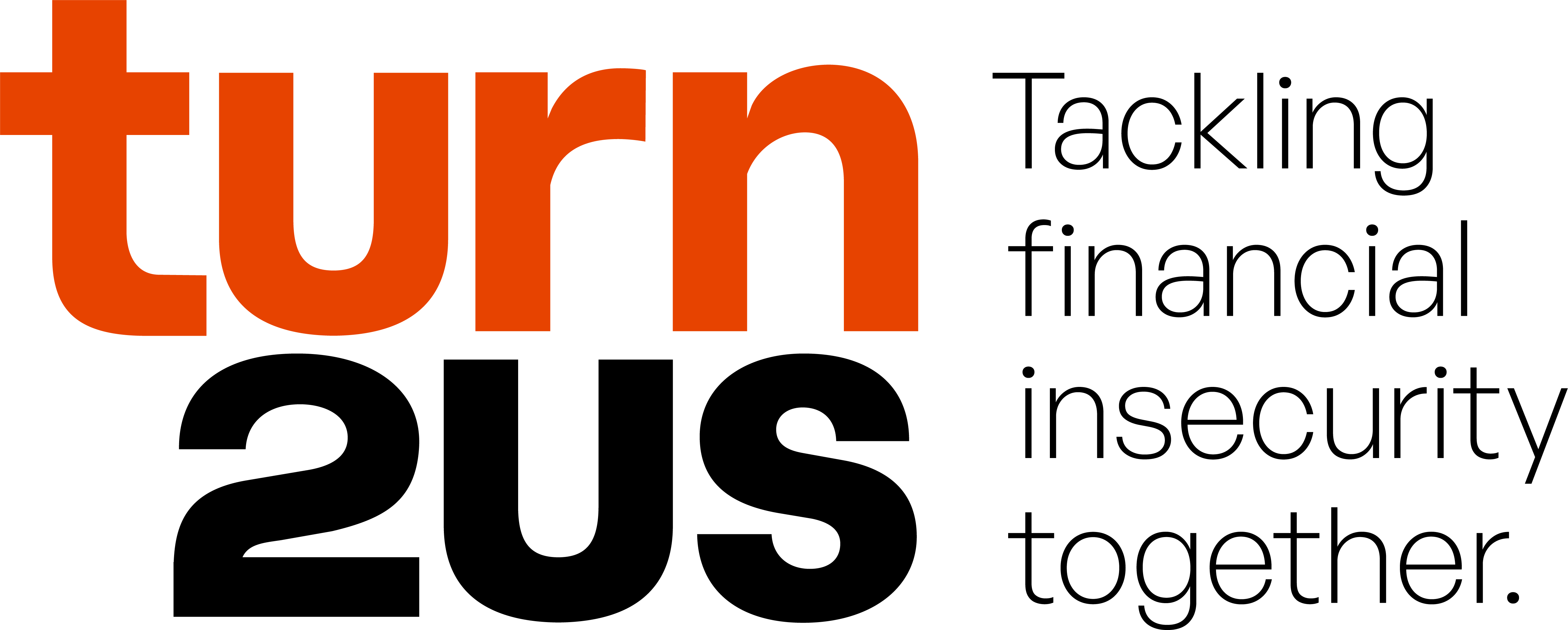
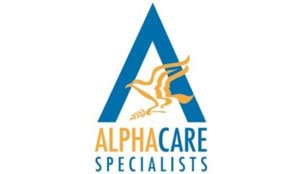





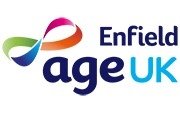

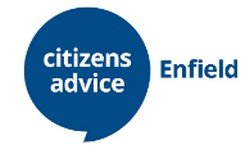

There is a lot of jargon in health and social care. The Care and Support Jargon Buster shown below from Think Local Act Personal, is an A-Z directory of Plain English definitions of the most commonly used words and phrases in health and social care.
Types of Direct Payments
A direct payment is money for direct services to the person being cared for, after assessment, to meet specific identified needs and aims. They have to be spent on theses services as detailed in the support plan. If the money is spent on anything else that is not identified in the support plan as a need then this would be considered a misuse of the payment and requests can be made for repayment.As a carer, if you are managing a DP for the person that you care for, it is really important that you understand what the payment is for. If you are in doubt, always check with social services!
Case example: a mother was getting a direct payment for her adult son who had expressed, during his social care assessment, that one of the things he wanted to achieve was to go to football matches with his friends. For a long period of time she paid for his football tickets using his direct payment, this was considered a misuse of the direct payment and she was told to pay back thousands of pounds. The issue arose even though she had been submitting paperwork to the local authority detailing what the direct payment was being used for, every few months.
It was not considered the responsibility of social services to actually pay for her son to watch football matches. Her son was very disabled and so required support in the community and so the payments were meant to be used for someone to assist him physically to both get to and manage whilst at the football ground; this would then have been considered a valid spend.
Carers Direct Payment
This is a made to a carer, to meet the needs identified during a Carers Assessment where they cannot be met by other services such as Enfield Carers Centre. Carers Assessment at ECC are for those caring for someone over the age of 18 or via a joint assessment if caring for someone younger.
These payments are subject to means testing, however, these generally tend not to be as strict as those applied to service users; for example, only having savings over £23,250 would impact on a carer’s eligibility for receiving a direct payment but other things such as income and benefits are not taken into account. When the payment is awarded you are sent a letter telling you what it can be spent on. As with other DPs if they are not spent correctly a repayment may be requested.
Case Example
Mrs M is 56 and caring for her husband with Early Onset Dementia and admits during her Carers Assessment that she is unable to visit friends or get out to the hairdressers as she had to give up work and is financially unable to afford to go out or pay for replacement care for him.
She is awarded a Carers DP to pay for a weekly lunch with her friends and a monthly trip to the hairdressers.
She accesses ECC’s Replacement Care Scheme at no cost.
She keeps the receipts from the hairdressers and the restaurant and sends them to ECC after her annual review.
This is a correct use of her DP.
If Mrs M was using the money to pay her gas bill or to buy food shopping this would be incorrect and she would be asked to repay the money.
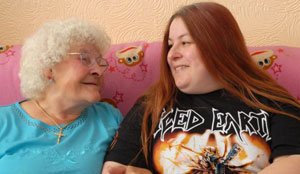
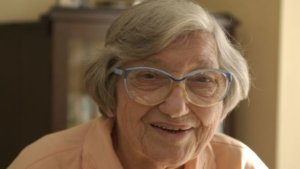
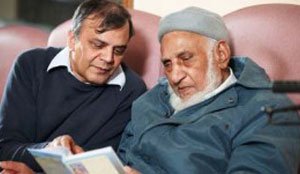
If you would like to know more about Direct Payments or have any questions about any of the content on this page then please call:
Telephone Number: 020 8366 3677
Email: info@enfieldcarers.org
Safe and Connected/Telecare is a twenty four-hour emergency service run by the Enfield Council that helps people live independently and safely in their own homes.ENFIELD TELECARE SERVICES – Personal indoor and outdoor devices to keep you Safe and Connected 24×7
HOW IT WORKS
A connection to Safe and Connected is created using your telephone line.
You will also be given a pendant or other sensor device, depending on your needs. When you press your pendant, it sends an alarm to Safe and Connected where staff will call you to check what the problem is.
If necessary they will send a response officer to your home so you get the help you need as soon as possible.
When an alert is sent to Safe and Connected, trained staff will know who and where you are and what response is needed. Even if they can’t hear you via the speech unit, they will still be able to act on your call in response to emergency alarms.

SAFE AND CONNECTED SERVICES
There are three different types of service:
- Safe Alert – staff will let one of your nominated contacts know to visit you at home
- Safe Response – alerts a Safe and Connected officer to come out to you in an emergency, regardless of the time, day or night. Lifting equipment is available to help if you fall
- Safe & In Touch – includes all the benefits of Safe Response, plus a daily welfare check and regular keep in-touch call from Safe and Connected staff
All customers pay a weekly charge, which will differ depending on what service you need. It may cost less than 1 pound a day if you choose the basic service.
See the Enfield Council Safe and Connected website for the current price information.
NEXT STEPS
If you would like some more information or a call back then please go to the Enfield Safe and Connected | Enfield Council website to see the contact telephone number and email address (safeandconnected@enfield.gov.uk).After a personalised consultation, they would provide you with with an easy to use alarm unit and choice of a lightweight pendant or wristband.
For more information, see the brochure with all the details please click here: Safe and Connected DL leaflet, or visit the Enfield Council website for Safe and Connected: Enfield Safe and Connected | Enfield Council https://www.enfield.gov.uk/safe-and-connected-telecare-home-monitoring-careline
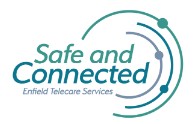
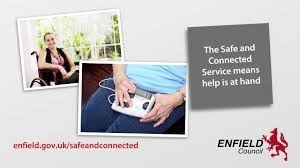
ECC CAN HELP YOU TO ACCESS:
- Special fire safety equipment for people with hearing, sight, dementia, physical or mental health issues
- A Fire home Safety Check
- Helpful aids or apps to make things easier at home
- A free android phone
- Advice on how to use and apply for the service
Call Enfield Carers Centre for more information on: 020 8366 3677 or email: info@enfieldcarers.org
A Community Care Assessment’s aim is to identify social care needs and document any intended actions to meet these. The Care Act 2014 states that a person’s wellbeing should be considered when assessing them for social support but the same act also sets a level of need before social services have a duty to provide any assistance. Not all social needs, such as requiring help with shopping, gardening or housework would result in any support being offered and a person would have to have a Community Care Assessment to determine if they are both eligible for support and the amount of help they will receive.
There are some activities where it would be expected that help will be provided, where a service user is unable to manage these unaided; such as bathing, dressing, medicating, toileting and cooking. The assessment should be person focused and a social worker would discuss what the service user would like to achieve and how any disability impacts on their ability to manage this; such as accessing education, work or social events.
Direct support might be offered or a direct payment equivalent, where the money to pay for services is provided to the family to spend on meeting identified needs. If social services cannot offer support in a particular area, referrals might be made to other organisations who can help or general advice given regarding how to accomplish desired aims.
There should be no expectations placed on carers to meet any needs, however, if a carer accepts responsibility to provide any elements of care then the social worker can allow this and not put any alternative provision in place.
As a Community Care Assessment is a tool to determine levels of social needs then any services provided would be subject to a means test and the service user would normally contribute towards the cost of the services, at a level determined by their financial situation.
Social Services can advise you about whether the person you care for will be eligible for care at home. To request an assessment for a cared for person who is an adult for call the Enfield Council Access Team on 020 8379 1001.
To find out more details of what happens during a Social Care Needs Assessment click here: What is a Community Care Assessment?
If you care for a child under 18 with additional needs it is advisable to get advice from a specialist organisation of the Council’s Joint Service for Disabled Children before considering any referrals or changes to services.
A good first step is to contact ECC or parent carer groups such as :
These organisations supports families of children with special needs.
Another option is to contact the Special Educational Needs Co-ordinator at your child’s school or pre-school. Or you can speak to your Doctor or other Health Professional.
- Enfield Council has details of the local offer support for disabled children and their families. Click here for more information: https://new.enfield.gov.uk/services/children-and-education/local-offer/
What are Direct Payments(DP)? Is a Carer’s DP different from my loved one’s DP?
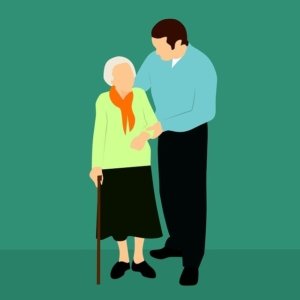

Emergency Care – Enfield Council
Unexpected things can happen to anyone and carers are no exception. You may get ill, need hospital treatment yourself or have an emergency family matter to deal with that means you’ll have to leave the person you care for a period of time.
If you have family members or close friends who can help cover for you while you’re unable to care then, with a bit of organising, you might find that this is workable for the period required.
However, if you’re caring for someone without the support of other people then Adult Social Services should be contacted to ensure that appropriate care continues to be provided should you not be available. Social Care Services are subject to charges depending on the financial means of the person requiring care; however, there is always a legal duty for social services to arrange care even if the costs of these would then be fully paid for by the person requiring care.
If you need the process, or your rights, explained to you, give Enfield Carers Centre a call.
Emergency Respite from Enfield Carers Centre
What Do We Pay Towards Social Care?
The amount that a person has to contribute towards their care, in Enfield, is calculated using a Contributions Policy. There are two policies one for if the person is receiving care in the community and another if they are in residential care.
Basically, a service user is allowed a Minimum Income, (the amount of which differs depending on age and circumstances), any costs directly related to their housing and an allowance for Disability Related Expenditure (DRE); any income in excess of this are considered available to be used towards social care contributions. At the time of writing if a person’s savings are under £14,250 then they are disregarded, for every £250 above this £1 a week is considered as income that can be used towards their contribution; if they have savings above £23,250 then they would be considered able to fully fund their own care needs.
Are the Carer’s Income/Savings Taken into Account?
No, it is only the service user’s means that should be considered when calculating contributions. If they have a joint account with another person then 50% of the money in that account would be allocated to them, unless it can be evidenced that the other person contributed more into that account and therefore the services user’s percentage should be reduced.
There are certain non-mean tested benefits that are not considered as income, such as mobility components of disability benefits; at time of writing Enfield does not consider the night care component as income. However, other benefits such as ESA, and the rest of care component of DLA, PIP and AA are considered income, which can be used towards paying for care.
If a person is in residential care then they are considered to only need a small allowance of money, most of their income would be considered available to be used towards care costs; if they own a property then the value of this will be considered also after 12 weeks of them being within residential care, unless there is someone still living in the property that falls within the category that allows the property to be disregarded.
Are there any other exemptions from paying contributions towards Social Care?
If the service user qualifies for Continuing Health Care (CHC), qualifies for Section 117 After-care under the Mental Health Act or has a diagnosis of Creutzfeldt-Jakob disease (CJD) then they do not have to contribute towards their social care.

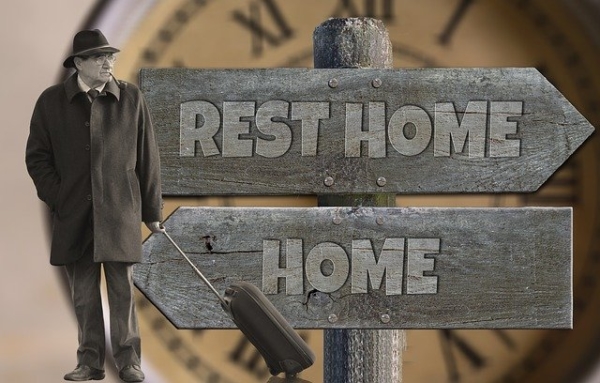
The hidden cost of disability
In essence, any cost that is incurred as a direct result of someone’s disability should be considered disability-related expenditure. To use a very abstract example, if a carer drinks coffee and eats some custard cream biscuits to get an energy boost to support a disabled person at night this could be considered DRE, as the cost would not have been incurred if not for the fact a person had a disability.
The local authority might consider that drinking economy coffee and shop brand Custard Creams would have sufficed, rather than the luxury brands that were actually chosen to be consumed; if this were the case it would be reasonable to expect that the cost of the cheaper alternative to be disregarded as income that could be used towards social care contributions.
The key point to remember is that if the person did not have a disability the expense would not keep being incurred. If someone choose to buy new clothes then arguably they have made a choice to spend money and this would be paid using their income, not by taking this from their social care contributions; however, if a person with autism habitually ribs their clothing then the need for new clothes is not a choice, it is a cost relating to their needs, and so an allowance should be allowed as disability-related expenditure.
The local authority would expect evidence of spend, such as receipts covering a number of months; if these have not been collected then DRE could still be requested by offering to provide the receipts over the next few months so that some level of calculation is possible.
It would be expected that a person would contribute equally towards household costs, so submitting a gas bill and hoping that the full cost will be disregarded would be highly optimistic; there would also be some expectation that some costs would have occurred regardless of a person’s needs. For example, if a person feels the cold because of their condition, or is incontinent so requires extra clothing to be washed, it would be unrealistic that the full cost of heating and laundry would be disregarded, as it is only the additional costs incurred to meet disability-related need that would be taken into account.
Enfield Carers Centre run training sessions covering the approach you can take and where to get advocacy advice.
Any planned events are listed here.
A decision cannot be appealed unless the decision has first been reconsidered by a decision maker (unless it is a housing benefit decision). This process is called a Mandatory Reconsideration.
Why researching the benefit being appealed is essential
Getting support to challenge benefit decisions can be difficult because of limited services and high demands placed upon these. This is the reason why it is highly beneficial to be both informed and proactive in the best way to appeal benefits decisions. This does not only improve the chances of a successful challenge it would also give a support worker a head start, should you manage to access one, when they are working on your appeal; luckily there are resources online that can help you to understand benefit entitlements and regulations. Key links are provided at the end of this page.
One of the key points to remember is that an appeal is actually more to do with ensuring that benefit rules were followed correctly, and the claim was processed fairly, rather than just the belief that a decision is wrong. If a decision seems highly unfair but was correctly made in law then there is actually no grounds to appeal. This is why it is important that you understand the statutory rules of the benefit so that you can highlight why a decision was incorrectly made rather than just stating that the decision is disputed without giving clear reasons.
Benefit appeals are based on the date of decision, if you could walk for miles on the day of assessment but the next day fell over and broke your legs then your situation may have drastically changed but this would have little bearing when challenging a decision that you were not able to walk long distances, when assessed.
You would prepare for a boxing match, wouldn’t you?
Let’s use the example of boxing to highlight these points. If you lost a bout and wanted to challenge the decision then you would explain your reasons why you believe you was treated unfairly. Perhaps your opponent was kicking you, they were much bigger and heavier than you or the judges of the match were biased towards them; all these reasons would mean that the processes followed were not fair and so the final decision is questionable. You may find, as you research, more technical reasons why the decision was suspect; perhaps their boxing gloves were the wrong thickness or they hadn’t weighed in properly, again by not following the rules the validity of the decision is questionable.
However, arguing that the decision was wrong because they kept hitting you and wouldn’t let you hit them back, as unfair as this may seem, is not against the rules so would not result in any change in the outcome. Also if they cheated in their next bout, but hadn’t during yours this is not a valid reason to object to the decision; as only the circumstances at the time the decision was made would be taken into account.
It would be foolhardy to undertake a boxing match without preparation and the same is true of benefit appeals.
Key Points
These points may appear obvious but it is not uncommon for people appealing a PIP decision, for example, to keep saying that they are ill and to only provide evidence of their diagnosis when challenging a decision. Whereas PIP is a scoring based benefit that focuses on how a person can manage in a number of key activities, regardless of any condition or diagnosis that they may have. As their diagnosis is not actually being disputed but how their condition limits them within key activities, focusing on proving a diagnosis gains little and may overshadow other valid points that could be made.
If there is any decline in health, which happened after the original decision was made, this would be considered a change in circumstances rather than a grounds for appeal.
Arguing that a person needs more money, that a decision is felt to be unfair without providing any specific reasoning or that someone in a comparable situation gets the benefit so it should be awarded in this case too adds nothing to an appeal attempt. Whereas, focusing on the rules of that benefit and providing evidence and arguments why these were not applied correctly is essential.
Resources for challenging decisions:
Personal Independence Payments
Do I need a solicitor to make a power of attorney?
No, but it can be advisable depending on how complex the instructions from the donor are. Also if the person has business interests, properties or lots of assets then it might be best to seek specialist legal advice. Words that are used by people every day have a very specific meaning in law if the POA is disputed and a legal opinion is sought then the way instructions has been worded can be very important.
What types of instructions can the donor make?
This is where things can become complicated. The donor can stipulate if their attorneys can represent them at all times or only if they have lost mental capacity. They can state that there are multiple attorneys who can all act separately or must jointly agree on all, or certain types of decision. They may state that only one attorney can act at a time but nominate another individual to take over if a current attorney is unavailable to act; the donor can also make very detailed instructions if they believe this to be necessary to ensure their wishes are clearly understood.
However, if there is any ambiguity in how these instructions might be interpreted or if what is being asked is considered unreasonable, or impractical, then the Office of Public Guardians can refuse to register the document.
Things to consider
If the donor stipulates that a number of attorneys have to act jointly in decisions, and one of them is unable to continue to act, then the whole POA would be invalidated. As POAs are legal documents, there are some legalities to how they are used; for example, if you are married and your partner is your POA but you then get divorced then this would usually invalidate the POA; unless there are other attorneys who can act separately allowing for this former partner to be removed without issue.
As you can see things can have the potential to become complicated but if all you require is legally recognised authority to act on a person’s behalf, should they lose capacity, then a basic POA can be completed online at relatively low cost and with little specialist knowledge.
What are the benefits of having a POA?
If someone is deemed to lack capacity and there is no POA is in place then trying to pay bills or access their bank account on their behalf can be very problematic. If there are any disagreements about how care should be provided between the family and service providers there would be no one who could act officially as their voice; in these cases, an Independent Mental Capacity Advocate (IMCA) may be used in an effort to determine what they would have chosen.
As a person without capacity is unable to choose someone to act on their behalf becoming their representative would require going through the Court of Protection to become their Deputy. Deputyship hearings can be expensive, and the court will decide what types of representation will be permitted. Whereas a basic Power of Attorney can be drafted online for under a £100, much less if the donor has a limited income, and the donor chooses how much authority someone has to act on their behalf.
What is the role of the attorney?
An attorney should strive to make best interest decisions on behalf of the donor and act as they believe the donor would have acted. For example, if the donor always gave £50 a year to a Cat Charity then it would be acceptable that the attorney continues to do this on their behalf. However, if the attorney didn’t really like cats and so gave the money to a dog charity instead arguably they would then be acting based on their personal preference rather than considering what the donor would have wanted. The role of the attorney is to always try to act as the donor would have wanted, as well as to safeguard their best interests.
See HM Government website: Make, register or end a lasting power of attorney: Overview – GOV.UK (www.gov.uk)
See the NHS website: Giving someone power of attorney – NHS (www.nhs.uk)
Under Section 117, of the Mental Health Act 1983, a person who has been subject to certain conditions, under other sections of the Act have a right to receive free aftercare, rather than means-tested social care provisions.
A person might qualify for 117 aftercare if they were detained:
- for treatment under section 3
- under a hospital order under section 37
- following transfer from prison under section 47 or 48
- under a hospital direction under section 45A
You also have the right to section 117 aftercare if you:
- have been discharged onto a Community Treatment Order (CTO) for the entire period of your CTO
- are on section 17 leave of absence from your detention under section 3, or
- are a restricted patient on a conditional discharge
You have the right to section 117 aftercare after you leave hospital whether you:
- leave hospital immediately, or
- stay on as a voluntary patient
How do I find out if someone is entitled to 117 After-Care?
In Enfield details of whether someone should receive 117 After-care should be noted within the Mental Health Trust’s database, RIO. Although the electronic recording of this information goes back for a number of years, if someone was subject to sectioning prior to the date files were being recorded in this way then a request would have to be made to the Trust to look for their paper files. 117 After-Care is a legal right so if the person meets any of the criteria detailed above they should be eligible; unless a court has removed this right.
Continuing Healthcare is when a part of, or all of a person’s needs are medical rather than social, such as washing and dressing. They may then be eligible for NHS funded Care known as Continuing Health Care. Click here for full details: What is a Continuing Care Assessment?
How are decisions to award Continuing Health Care Funding made?
Initially, a small group of multi-disciplinary professionals, (a trained nursing assessor, social worker and usually a 3rd person such as a ward nurse/ residential home carer), use a Decision Support Tool (DST) to determine if CHC should be provided. The DST consists of a number of medical fields with descriptors detailing levels of need, these descriptors are strongly adhered to. These descriptors also have to be considered within medical terminology. If a person is completely bedridden they may score high, but not severe, this is because some people have injuries that mean they can’t be moved, at all, without risk, and it is this level that falls under the severe descriptor. People tend to believe that scoring high enough descriptors in a number of domains is how CHC funding is allocated, however, if the person’s care needs can be proven to be complex and unpredictable this should be adequate to argue for funding irrespective of the descriptors applied in the domains of the DST. The family are usually given an opportunity to voice their opinions but this is more to debate with the professionals why particular descriptors should be applied; if the family dispute an applied descriptor then this would be noted but would not affect the actual descriptors chosen, within the DST, by the professionals.
The meaning of the descriptors are medical in nature and cover a wide scope of disability. A person who is completely bedridden would score high but not severe needs in the mobility domain; the severe descriptor would be used in cases where the movement of a person could result in injury or death, such as a neck fracture. A person who has limited cognition would be considered compliant with medications if they took them without issue; regardless that they have no comprehension of what they are doing so are not actually agreeing in any way to being medicated or being instructed to take medications, which arguably is a more basic dictionary definition of compliance.
The first stage of appealing a decision not to award funding is to inform the Clinical Commissioning Group (CCG) that you do not agree with the decision; this can result in a review which in itself can sometimes be enough to lead to a change in the decision in borderline decisions. You will be allocated a Nursing Assessor who will meet with you and go over any evidence prior to appeal; if a strong case is made at this stage the decision could potentially be overturned.
If not an appeal can be raised to a local panel, usually held at the CCG, chaired by senior CCG, Social Care and Medical Professionals. If this is unsuccessful then there is a right to a further appeal to a regional panel.
Although families have a right to do this it would be hoped that they can bring strong arguments evidencing that incorrect descriptors had been applied or compelling arguments as to why nursing care needs should be considered more than merely incidental or ancillary to what the local authority would be expected to provide. Arguing that someone’s needs are a result of their health is not helpful and the focus should be on the nature of support required by the service user; when shaping an appeal and gathering evidence in support.
If considering making a challenge against CHC decisions it is advisable to seek specialist support, from organisations such as Beacon.
It is estimated that there are over 30,000 unpaid Carers within Enfield.
No two caring roles are the same and no two Carers are the same. We offer a wide range of services to allow all Carers to have a life outside of caring and enable carers to balance their own life needs as well as their caring role.
Whilst many Carers happily care for their loved ones without any outside assistance there may come a time when a Carer needs one of the following:
- A break from caring
- Help to prepare for care after a hospital admission
- Advice and information (legal, financial, practical or otherwise)
- Professional services e.g. care agency services, aids and adaptations, residential home
- A social services assessment
- Practical training such as manual handling or first aid
- Emotional support e.g. counselling or helpful tips for stress management
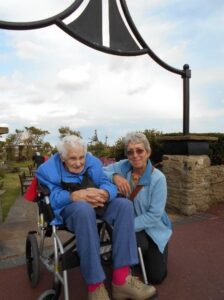
How we can help
Enfield Carers Centre is here to help Carers at every stage of their caring journey. So whether a person has just started looking after someone or has been caring for many years, our team is here to listen or offer guidance and support. We understand that the maze of welfare benefits, health and social care services can be daunting.
We can help Carers to understand and consider what options they have; whether in terms of juggling work and care or if considering moving the person they care for into supported living or residential accommodation.
We understand that caring can be quite draining and stressful at times. Carers can experience a range of emotions such as grief, guilt and anger when providing intensive support. Our well-being workshops, counselling and support groups are a great way to help carers work reduce stress, reflect on their own needs and to feel better supported.
We offer social activities, opportunities to meet other Carers, relaxation sessions opportunities for some “me time”; as well as practical advice and information most relevant for Carers to know.
We’re determined to improve the lives of Carers. We aim to do this by ensuring that:
- Carers’ needs are recognised
- Carers know and understand their rights
- Carers have their voices heard
- Carers know where to go for support, advice and help
FAQs – Relating to Your Cared for Person
Safe & Connected (the Council’s telecare service), provides a wide range of equipment that can help people to continue living at home independently and safely.It’s good for carers to know about when they don’t live with their cared for person or to give them confidence and peace of mind when they go out.
We have a summary of the service in our FAQs or see the new Safe and Connected website. Here is the link: Enfield Safe and Connected | Enfield Council
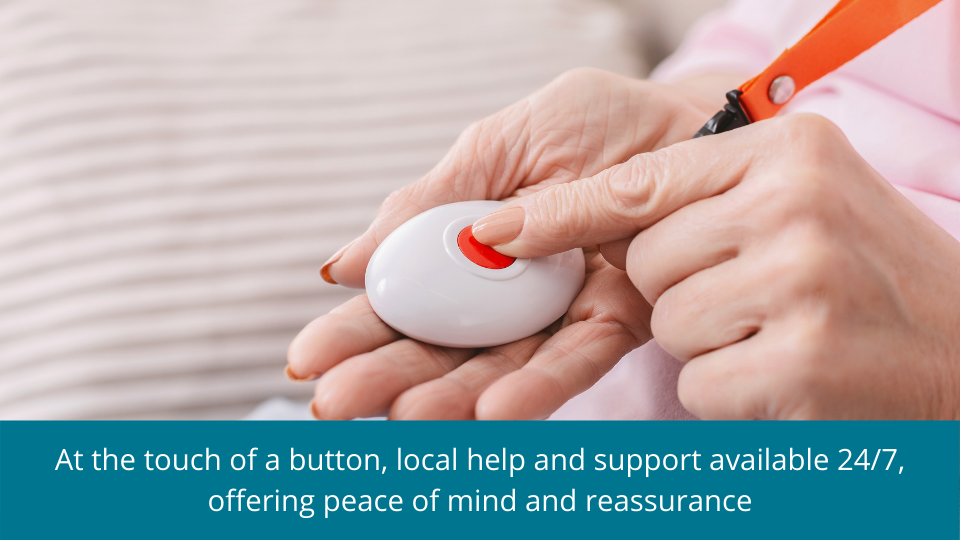
Safe and Connected is a 24 hour service providing round the clock support to people who may feel vulnerable.
You can find out more by watching this short film.
What is Safe and Connected?
Safe and Connected is a 24 hour emergency service run by Enfield Council. The service provides emergency support to anyone 1 8 and over who may feel vulnerable, have a disability, or a long-term health condition so that they can access help day or night to enable them to live safely and
independently in their own home.
Our aim is to enable you to have independence when you want it, and help when you need it.
How it Works?
You will be provided with an easy to use alarm unit and choice of a lightweight pendant or wristband, including any other sensors required to meet your health needs, which in an emergency can be activated to send an alarm call to a fully trained Safe & Connected Telecare Advisor via your telephone line. (Don’t worry if you don’t have a landline as we also offer sim enabled devices at no extra cost).
In an emergency, a Safe & Connected Response Officer or your nominated contact will attend your home to get you the help you need as quickly as possible. We aim to respond to emergencies within 45 minutes if not sooner.
 https://www.coordinatemycare.co.uk/
https://www.coordinatemycare.co.uk/
Coordinate My Care is an NHS service that coordinates urgent care for patients.
Patients and their carers can record their wishes in their personal care planned called “MyCMC Plan”.
Did you know ?
You can now use the NHS Coordinate my Care to create an CMC urgent care plan for the person you are looking after, together with their doctor or nurse. It includes important information about their illness, how and where they’d like to be cared for and people to contact in an emergency.
What is CMC?
Coordinate My Care puts the patient at the heart of planning your urgent medical care: by making sure that their wishes are taken into account by everyone who will be looking after them.
You create a CMC urgent care plan, together with a doctor or nurse. It includes important information about someone’s illness, how and where they’d like to be cared for and people to contact in an emergency.
Then the information is shared with all the health professionals who might be involved in treating them, such as 111, your out of hours GP, the ambulance paramedics and the doctors and nurses in the Emergency Department.
So everyone knows what their diagnosis is, what they need, what they want, what their clinical team recommends, and in an urgent or emergency situation, everyone can take it all into account.
There is a an example of a patient’s view of a care plan with friends, family and healthcare professionals included.
How do I get started to create my CMC care plan for the person I am looking after or for myself?
Please see the CMC Patient Overview brochure to see what is involved with setting up the care plan.
The easiest way to create a MyCMC plan is using the Coordinate My Care website (Patients section). You can start, resume or view your own care plan from here.
They will need some personal information about the person whom the care plan is for, and their care preferences, and then their doctor or nurse will add the medical information we need.
You can do your bit all in one go, or in stages (your log-in details will remain active for a 28 day period, so we’ll keep what you put in, and you can come back and pick up where you left off during that time period).
You can do it on your own or with family and friends, in your own home, and in your own time. And you’ll find helpful videos on the site to guide you through the process.
For a full step-by-step guide, see this booklet for more help on how to set up your CMC personal care plan, online.
The link to the Patient Care Plan is : https://www.coordinatemycare.co.uk/for-patients/mycmc/
Always make sure you obtain consent from the person who’s medical information you share.
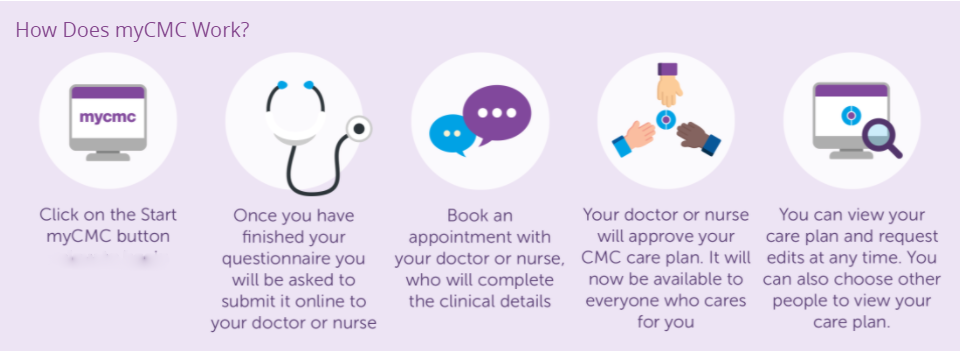
The London Taxicard Scheme gives subsidised rides to Enfield residents of all ages who have serious mobility problems or sight impairments.
This allows people with difficulty using public transport to get out and about in licensed taxis and private hire vehicles.
On the Enfield Council web site, search Concessionary Travel and London Taxicard Scheme.
- Form can be completed online for you or someone else.
- If you are applying for someone else, the form will ask for your details, then the applicant’s details.
- For filling in the form you will need date of birth and NI number of the applicant.
If your application is successful, the Council will require a photograph of the applicant.
They will contact you shortly after your application with details on how to upload this.
You will need to provide proof of identity, address and any benefits received by the applicant.
Some benefits or conditions automatically allow eligibility.
Enfield Council aims to process your application within twenty working days of receiving the information required.
Taxicard holders in Enfield can receive up to eight subsidised trips per month.
If you’re unable to complete the online application form, you can get help by visiting Enfield Civic Centre or Enfield libraries.
You can also contact Customer Services on 020 8379 1000 to arrange for Concessionary Travel to call you to help complete the form.
If you are a carer registered with Enfield Carers Centre we can help you to complete the forms. Call: 020 8366 3677 or email: info@enfieldcarers.org for more information.

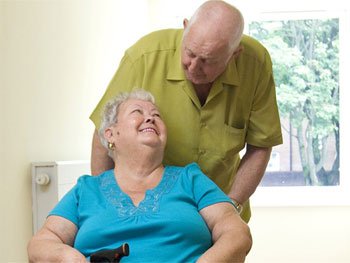
Visit the gov.uk site and complete the online form.
It is useful to have an email address that is regularly checked, as this is the quickest way for the Council to contact you.
Supporting documentation can be electronically attached by uploading from the computer on which you fill out the online form.
If possible, take photos of the required documents and transfer them to the computer you use for the form (email or plug in).
If you have a printer that can also scan, this is a good way to capture the documents.
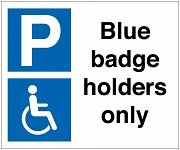 Read how a Blue Badge can be used in this pamphlet.
Read how a Blue Badge can be used in this pamphlet.
 A Blue Badge costs £10 in England and usually needs to be renewed every 3 years.
A Blue Badge costs £10 in England and usually needs to be renewed every 3 years.
It can take 12 weeks for a decision to be made.
Contact Enfield Council for any questions or reassessments.
You will need:
- An electronic head shot photo of the person who will own the Blue Badge is also required to be uploaded.
- Proof of identity can be one of driving licence, passport or birth / marriage certificate
- Proof of address needs to be one of council tax bill or letter from a government department.
- Proof of any benefits e.g. PIP or DLA including the mobility assessment
You’ll also need to know:
- your National Insurance number (if you have one)
- the details of your current Blue Badge (if you’re re-applying)
- the medication for the person who will own the Blue Badge
- the names of medical professionals and clinics attended by the applicant
- the medical terms for the conditions suffered, ideally in correspondence from a clinic or medical professional.
Are you or the person you care for Eligible for a Blue Badge?
If you or they have:
Either: A physical diagnosis that means they are unable to walk short distances (0 to 80 meters, about 7 bus lengths); as they are physically unable to walk, experience extreme pain, server breathlessness or a high risk of falling.
Or: A cognitive/mental health diagnosis that means they lack danger awareness or have unpredictable behaviours that may cause risk to self or others, or experience significant psychological distress
And they have evidence of recent surgery, attendance at specialised clinics or a medical history of experiencing pain, breathlessness, falls, challenging behaviours and/or significant psychological distress to support application
Then they may meet the eligibility criteria.
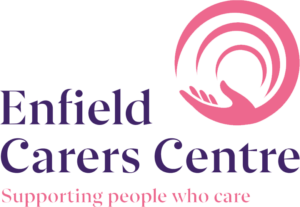
If you/your loved one meets the above criteria call Enfield Carers Centre on 020 8366 3677. If there is a reasonable chance the application will be successful, we will arrange for a member of our team to support you to apply.
If you/they do not meet the criteria, we will be unable to help you with an application.
There is also help available to complete online forms at the following libraries:
- Edmonton Green Library
- Enfield Town Library
- Ordnance Unity Centre Library
- Palmers Green Library
How to keep your Blue Badge safe
“Blue Badge companion permits” are available f that can be put inside a car when it is in disabled place outside a person’s house. It is proof of eligibility but useless to thieves.
You can apply for a Blue Badge Companion Permit from the Parking Shop in Crown Road, Enfield. You will need relevant documentation e.g. presentation of the Blue Badge, log book and a utility bill.
Look at the Enfield Council website for companion permits: Parking permits | Enfield Council
You can visit The Enfield Council Parking Shop Monday to Sunday, from 7am to 7pm or contact them on 020 3856 0036 (Monday to Sunday, from 7am to 7pm).
When parking elsewhere, you have to display the Blue Badge as usual, but you can buy a Blue Badge protector that locks onto the steering wheel, from car accessory shops e.g. Halfords.

You can call the Enfield Civic Centre on 020 8379 1000 between 9am and 5pm, Monday to Friday.
You can call the Enfield Adult Social Care team on 020 8379 1001 at any time 24 x 7.
When someone you care for is in hospital, it can be a very worrying and stressful time. Don’t be afraid to voice your concerns to ward staff.
If you would benefit from having someone to talk to, there are a number of people who can help.
- Nursing staff or clinical team managing the person’s care
- The Patient Advice Liaison Service(PALS) or the hospital chaplain.
- The Discharge Nurse on the ward
- ECC’s hospital Support worker who can be called on : 07421034282 or email: healthcaresupport@enfieldcarers.org
- The hospital social work team
If the person you care for has a learning disability you can ask to speak to the hospital learning disability liaison nurse.
North Middlesex Hospital was the first hospital to introduce a carers’ passport scheme for carers who are supporting vulnerable patients while they are in hospital, and who are regular visitors to the ward.
They want to ensure you feel fully involved and supported by hospital staff in the care, treatment and discharge of the person you look after.
Please read the carers’ information booklet, and ask a member of staff if you have an questions.
Carers can also benefit from discounted parking charges and flexible visiting times.
Enfield Carers Centre can provide you with support, advice and training when and after your loved one has been admitted or discharged .
Click here for more information : Carers’ Basic Nursing Skills / After Hospital Discharge Training
We also made a video to support you through the discharge process and advise you of what to expect. Click here to view Carers Hospital Discharge Video


Hospital Discharge
If the person you care for is in hospital you may be faced with important decisions. You may be considering taking on this caring role for the first time and don’t know what to expect. Or you may have already been caring for the person, but their needs have now increased or changed.
One important thing to remember is that it is your choice whether or not to take on a caring role. Think about the type and amount of support you are able to provide and what help you might need. For example, you may be able to help with shopping and meals but feel that you would both like someone else to help with personal care. It is important for you to consider how your caring role is likely to affect your life and wellbeing. The NHS website has some useful guidance here: www.nhs.uk/conditions/social-care-and-support-guide/care-after-a-hospital-stay/
An outline of the discharge procedure
Each hospital will have its own discharge policy based on guidance from the Government. You can request a copy of the hospital’s discharge policy from the ward manager or from the Patient Advice and Liaison Service (PALS) department of the hospital.
Discharge planning starts as soon as the person you care for is admitted to hospital. It is important to let the hospital staff know as early as possible if you are a carer or thinking of taking on the role.
Should I, as a carer, be involved in the discharge procedure?
The hospital discharge policy should emphasise the importance of involving you and the person you care for at all stages of discharge planning, so long as the person you care for consents to this.
Hospital wards can sometimes seem like busy or intimidating places and you may feel pressure from the hospital to get the person you care for home as soon as possible. The person you care for may be anxious to come home. However, it is important that you feel your views have been taken into consideration and that the person you care for is not being discharged before necessary support has been put in place.
In situations where the person you care for does not want you to be involved or be given information about their care, you should be informed of this.
If the person you care for lacks mental capacity you may be able to make certain decisions about health and welfare matters if you have a Lasting Power of Attorney (LPA). If there is no LPA the law requires professionals to act in the ‘best interests’ of the person you care for and you should be involved in this decision making process.
What should happen before the person I care for is discharged?
When the person you care for is nearing their expected date of discharge the following steps should be taken:
- An assessment should be carried out to see if they are medically fit to be discharged.
- A discharge assessment should be carried out to see if they need support once discharged.
- A carer’s assessment should be carried out (or at least arranged), to see whether you as a carer need support once the person you care for is discharged .
- A written care and support plan should be given to the person you care for (and a support plan for yourself if you have had your own carer’s assessment), which outlines the support required and how this will be provided.
- The support outlined in the care and support plan (for the person being cared for) and the support plan (for you) should be put in place.
Carers UK 2020
Enfield Borough Council’s Access Team signposts individuals to Social Care and provides a Care Management Service to those with long term illness.
Address: Civic Centre, Silver Street, Enfield, London, EN1 3ES
Telephone: 020 8379 1001
Enfield Wheelchair Service
Enfield Wheelchair Service provides wheelchairs and associated equipment to adults and children living in Enfield who have no or reduced walking ability, a permanent or long-term medical condition, or a projected prognosis of six months or over. We provide a welcoming, tailor made service to meet the individual’s needs.
The service provides:
- Clinical assessment to consider physical, postural, social and environmental needs
- Provision of a wheelchair and equipment tailored to meet the assessed needs
- Full instruction and handover on the use, care, basic safety and maintenance of the equipment
- Access to an Approved Repairer who provide a repair, delivery, modification, planned maintenance and collection service
- Reassessment and review at the individuals request
Referral process
Initial referral to Enfield Wheelchair Service is via GP, Occupational Therapist or Physiotherapist. Once registered with the service, the individual is able to self–refer. Click here for more information: https://mylife.enfield.gov.uk/directory/providerdetails/216169
Related Services:
Telephone:
020 8379 8842
Email:
wheelchairservice@iwenfield.co.uk
Address:
Claverings 14 Centre Way, London N9 0AH
Opening Hours:
Monday – Friday
9:00am – 4:30pm

Emergency Care – Enfield Council
Unexpected things can happen to anyone and carers are no exception. You may get ill, need hospital treatment yourself or have an emergency family matter to deal with that means you’ll have to leave the person you care for a period of time.
If you have family members or close friends who can help cover for you while you’re unable to care then, with a bit of organising, you might find that this is workable for the period required.
However, if you’re caring for someone without the support of other people then Adult Social Services should be contacted to ensure that appropriate care continues to be provided should you not be available. Social Care Services are subject to charges depending on the financial means of the person requiring care; however, there is always a legal duty for social services to arrange care even if the costs of these would then be fully paid for by the person requiring care.
If you need the process, or your rights, explained to you, give Enfield Carers Centre a call.
Emergency Respite from Enfield Carers Centre
What Do We Pay Towards Social Care?
The amount that a person has to contribute towards their care, in Enfield, is calculated using a Contributions Policy. There are two policies one for if the person is receiving care in the community and another if they are in residential care.
Basically, a service user is allowed a Minimum Income, (the amount of which differs depending on age and circumstances), any costs directly related to their housing and an allowance for Disability Related Expenditure (DRE); any income in excess of this are considered available to be used towards social care contributions. At the time of writing if a person’s savings are under £14,250 then they are disregarded, for every £250 above this £1 a week is considered as income that can be used towards their contribution; if they have savings above £23,250 then they would be considered able to fully fund their own care needs.
Are the Carer’s Income/Savings Taken into Account?
No, it is only the service user’s means that should be considered when calculating contributions. If they have a joint account with another person then 50% of the money in that account would be allocated to them, unless it can be evidenced that the other person contributed more into that account and therefore the services user’s percentage should be reduced.
There are certain non-mean tested benefits that are not considered as income, such as mobility components of disability benefits; at time of writing Enfield does not consider the night care component as income. However, other benefits such as ESA, and the rest of care component of DLA, PIP and AA are considered income, which can be used towards paying for care.
If a person is in residential care then they are considered to only need a small allowance of money, most of their income would be considered available to be used towards care costs; if they own a property then the value of this will be considered also after 12 weeks of them being within residential care, unless there is someone still living in the property that falls within the category that allows the property to be disregarded.
Are there any other exemptions from paying contributions towards Social Care?
If the service user qualifies for Continuing Health Care (CHC), qualifies for Section 117 After-care under the Mental Health Act or has a diagnosis of Creutzfeldt-Jakob disease (CJD) then they do not have to contribute towards their social care.


Continuing Healthcare is when a part of, or all of a person’s needs are medical rather than social, such as washing and dressing. They may then be eligible for NHS funded Care known as Continuing Health Care. Click here for full details: What is a Continuing Care Assessment?
How are decisions to award Continuing Health Care Funding made?
Initially, a small group of multi-disciplinary professionals, (a trained nursing assessor, social worker and usually a 3rd person such as a ward nurse/ residential home carer), use a Decision Support Tool (DST) to determine if CHC should be provided. The DST consists of a number of medical fields with descriptors detailing levels of need, these descriptors are strongly adhered to. These descriptors also have to be considered within medical terminology. If a person is completely bedridden they may score high, but not severe, this is because some people have injuries that mean they can’t be moved, at all, without risk, and it is this level that falls under the severe descriptor. People tend to believe that scoring high enough descriptors in a number of domains is how CHC funding is allocated, however, if the person’s care needs can be proven to be complex and unpredictable this should be adequate to argue for funding irrespective of the descriptors applied in the domains of the DST. The family are usually given an opportunity to voice their opinions but this is more to debate with the professionals why particular descriptors should be applied; if the family dispute an applied descriptor then this would be noted but would not affect the actual descriptors chosen, within the DST, by the professionals.
The meaning of the descriptors are medical in nature and cover a wide scope of disability. A person who is completely bedridden would score high but not severe needs in the mobility domain; the severe descriptor would be used in cases where the movement of a person could result in injury or death, such as a neck fracture. A person who has limited cognition would be considered compliant with medications if they took them without issue; regardless that they have no comprehension of what they are doing so are not actually agreeing in any way to being medicated or being instructed to take medications, which arguably is a more basic dictionary definition of compliance.
The first stage of appealing a decision not to award funding is to inform the Clinical Commissioning Group (CCG) that you do not agree with the decision; this can result in a review which in itself can sometimes be enough to lead to a change in the decision in borderline decisions. You will be allocated a Nursing Assessor who will meet with you and go over any evidence prior to appeal; if a strong case is made at this stage the decision could potentially be overturned.
If not an appeal can be raised to a local panel, usually held at the CCG, chaired by senior CCG, Social Care and Medical Professionals. If this is unsuccessful then there is a right to a further appeal to a regional panel.
Although families have a right to do this it would be hoped that they can bring strong arguments evidencing that incorrect descriptors had been applied or compelling arguments as to why nursing care needs should be considered more than merely incidental or ancillary to what the local authority would be expected to provide. Arguing that someone’s needs are a result of their health is not helpful and the focus should be on the nature of support required by the service user; when shaping an appeal and gathering evidence in support.
If considering making a challenge against CHC decisions it is advisable to seek specialist support, from organisations such as Beacon.
The first stage to get help from social services is to request a Needs Assessment, also known as a Community Care Plan. Referrals, you can self refer or ask a professional or friend to do it for you. This can be done by calling the Enfield Council Social Care Access Team on 020 8379 1001 or emailing adultsocialcare@enfield.gov.uk
To get support a person must meet an eligibility threshold, this means that they have a level of need that confers a legal responsibility on the local authority to provide services to help them.
If a person is self-funding, for example, has savings in excess of £23,250, then they can still ask social services for an assessment and to provide services, but they will be responsible for meeting all costs; this would also incur a one-off fee of £250 to cover administration costs. However, as the setting up of services would be performed by social services and they would review needs on a yearly basis. Many people may decide that paying this fee is worth doing.
How much can I get involved in a care plan?
A care plan is a person-centred process and so the views of the person you care for (who is known by the council as the “service user”) should be listened to and documented. Carers also should be involved in the process, where possible, as there should be no assumption that they will provide any aspects of care, but they can accept responsibility to meet specific needs.
A service user can make any reasonable request from social services but the main duty that social workers have is to meet any identified needs. If a social worker states a need can be met in a specific way, that the service user disagrees with, then requests can be made for a preferred service. However, if this costs more than the provision offered then there is no obligation for social services to provide a requested service just because it is preferable to the service user. In these cases, a direct payment would usually be offered, to the value of the service recommended by the social worker, which the service user can use to pay towards meeting their needs in the manner that they wish.
A carer can express their views, however, the social worker’s role focuses on meeting the needs of the service user. If a carer disagrees with what a service user has requested this would normally have little bearing unless the service user has substantial difficulty when communicating or lacks capacity; in these cases, an advocate should be provided to support the service user through the process.
The person I care for needs to move to somewhere safer. How do I find out about care homes?
Enfield Council produces a directory of care homes each year which includes information about different homes in the borough and gives details of websites with information about services including care homes. Ask at Enfield Carers Centre for a copy of the directory or visit the Council’s website for more information.
Enfield Carers Centre hosts a bi-monthly Carers Care Homes Network for carers who are either thinking about care homes or who look after a relative who’s living in residential care.
It is always advisable to ask for a Social Services Community Care Assessment prior to making a decision about a move for the person you care for because you may find out about other options available to you and the person you care for.
To request an assessment for the person you care for call 020 8379 1001.

FAQs – Financial Topics and Money Matters
Worried about the Cost Of Living?
If you’re over State Pension age and on a low income, Pension Credit gives you extra money to help with your living costs.
Pension Credit can also help with housing costs such as ground rent or service charges and will entitle you to a Winter Fuel Payment.
If you make a new claim for Pension Credit before 21st December 2024, you will also continue to receive the Winter Fuel Payment this winter.
This is an easy read document about Pension Credit from the Government.
https://www.enfield.gov.uk/
EVA (Enfield Voluntary Action) has pulled together an overview of services and initiatives to help with the cost of living crisis.
Enfield Council services
The council’s Welfare and Debt Advisory Team helps residents maximise their income and get their full benefit entitlement.
Foodbanks and pantries – organisations that provide residents with low-cost or free food.
Community support at local libraries – Enfield’s 17 libraries provide safe and warm spaces to access a range community support.
Community hubs – a face-to-face service to connect residents with support, including help with managing money, jobs and skills, health and wellbeing, and housing advice.
Enfield Council also has an extensive Cost of Living resource page.
Mental health and wellbeing
Sanctuary in Enfield is a short-term crisis intervention and prevention service for local residents aged over 18. It’s open every day of the year, 5pm-10pm on weekdays and 12-5pm at weekends.
The Caribbean and African Health Network offers free online and telephone counselling to anyone from an African or Caribbean background.
Enfield Women’s Centre offers free support and advice services including counselling, open to all women aged over 16.
Samaritans offers a listening ear to anyone, whatever they are going through, and is open 24 hours a day, 365 days a year.
Enfield Wellbeing Network offers a free support programme to help residents achieve their longer-term health and wellbeing goals.
Independent support services and resources
Worrying About Money? Enfield has downloadable leaflets in seven languages with an overview of local debt advice and related support services.
Citizens Advice Enfield offers free, independent advice to Enfield residents on benefits, housing and debt. Its website is available in English, Turkish, Polish, Bulgarian and Romanian.
Warm Welcome Spaces includes a map so you can find your nearest warm space, where residents can feel part of the community and make new friends.
All People All Places run a day centre service at Pymmes Park Visitor Centre, offering housing advice, support and advocacy for rough sleepers and those at risk of homelessness in Enfield. It is open to both drop-ins and referrals.
Enfield Law Centre offers free legal advice on housing, welfare benefits, employment law, debt and immigration.
HEET and energy and money saving service LEAP have teamed up to provide free practical help to cut fuel bills and keep homes warm and cosy.
Energy Advice London – help with saving energy and money.
This independent benefits calculator enables residents to check if they are receiving all the benefits they are entitled to.
London Capital Credit Union provides easy access to saving schemes to help people build financial resilience.
Advice for Renters offers specialist legal advice on repairs and rent arrears, money and debt advice, and energy advice.
Shelter offers advice on homelessness and housing issues, including repairs, evictions and council housing.
Children and families
Healthy Start provides help to buy milk, fruit and vegetables if you are at least 10 weeks pregnant or have a child aged under four.
Growbaby supports Enfield families with free, good-quality new and second-hand clothes and equipment for children from birth to five years old.
The Family Fund offers grants to cover essential items if your child is disabled.
Healthy, cheap food recipes
Visit the NourishEd site from UKHarvest for recipes, cook-alongs, and food-saving tips.
Check out best-selling author Jack Monroe’s website for a feast of money-saving recipes.
See the BBC Good Food website for more budget cooking ideas.
Young carers aged 16+ born in the UK between 1st September 2002 and 2nd January 2011 may have money that has been put aside for them through Child Trust Funds, which could now be worth £1000 or more.
Please see the document produced by The Share Foundation who are the charity leading on this work for more information.
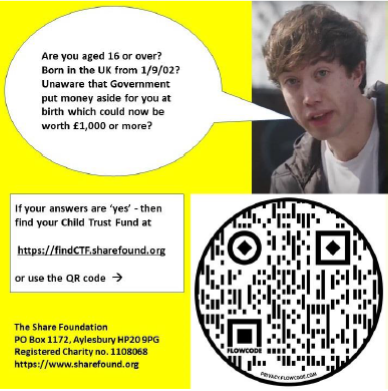
Support is available in Enfield
This leaflet is based on learning from Scotland’s A Menu for Change project and has been developed with support from these organisations.
The information on this leaflet was last updated on: 15/06/21
Step 1: What’s the Problem?
I suddenly have no money
- Lost job or reduced hours
- Money stopped
- Lost money
- Unexpected expense
- Disaster (e.g. flood or fire)
- Relationship breakdown
- Sanctioned (see option: 5)
See options 1, 2, 6
My money doesn’t stretch far enough
- Deciding between food, fuel, and mobile credit
- Low income
- Zero hours contract
- Statutory Sick Pay too low
- Facing redundancy
- Not sure if eligible for support
- Change of circumstance
See option 2
I am waiting on a benefit payment or advance
- New claim for benefit
- Payment delayed
- Waiting for decision
See options 1, 4
I have debt
- Rent or Council Tax
- Gas and electricity
- Payday loans
- Owe friends or family
- Benefit repayments
See option 3
Step 2: What Are Some Options?
OPTION 1 – Council Support Schemes
Anybody of working age and on a low income may be eligible for Universal Credit. Depending on your circumstances you may be entitled to claim housing benefit.
If you are on a low income and struggling to pay your council tax, please contact the Borough in which you live to apply for council tax support. If you are in receipt of the above and still struggling, you may be eligible for a discretionary payment. Find out more at: www.enfield.gov.uk/financialhardship
OPTION 2 – Maximise Your Income
Anyone who is struggling financially can get a benefit check and speak to an advisor for free and confidential advice. A benefit check can ensure that you are receiving all the money you’re entitled to, especially if your circumstances have changed recently. Speaking to an advisor could also help you find cheaper deals on things like gas and electricity and make sure you’re not missing out on things like free school meals.
OPTION 3 – Debt Advice
Debt can happen to anyone. Free advice and support can help you find ways to manage your debts and reduce how much you pay each month.
OPTION 4 – Benefit Advance
If you have made a new claim for benefit and are in financial hardship while you wait for your first payment, you may be able to get an advance to afford things like rent or food. It’s important to get advice before taking out an advance. Benefit advances must be paid back, and the money will be taken from your future benefit payments (a loan).
OPTION 5 – Hardship Payment
If you have been sanctioned, you may be able to request a hardship payment from the Jobcentre. Hardship payments are not always paid immediately, and they’re not available to everyone. Hardship payments of Universal Credit need to be paid back (a loan), but hardship payments of Job Seekers Allowance or Employment Support Allowance do not (not a loan).
OPTION 6 – Challenge a Decision
You can challenge a benefit decision if your benefit has been stopped / sanctioned / reduced / refused or you have been overpaid. Most benefit decisions need to be challenged within one month.
Step 3: Where Can I Get Help? for Free and Confidential Support
Enfield Council
Welfare Advice and Debt Support
A single point of contact for income and council debt issues, supporting residents to maximise income, pay council debts and remove barriers to work
www.enfield.gov.uk/financialhardship
Helps with options: 1 2 3
Housing Advisory Service
Housing advice and support for those who are homeless or at risk of being homeless
housingadviceservice@enfield.gov.uk
www.enfield.gov.uk/services/housing
Helps with option: 1
Citizens Advice
Citizens Advice Enfield
Free, accessible, quality advice with problems such as housing, employment, benefits, debts or immigration issues
0808 278 7837 (freephone)
www.citizensadviceenfield.org.uk/contact-us
Helps with options: 1 2 3 5 6
Citizens Advice National
Universal Credit Help To Claim: 0800 144 8848 (freephone)
Helps with options: 2 4
Debtline 0800 240 4420 (freephone)
Helps with option: 3
www.citizensadvice.org.uk
Enfield Debt Centre
Free debt counselling
07596 735 789
info@enfielddebt.org
www.sentlondon.co.uk/enfielddebtcentre
Help with options: 2 3 6
Christians Against Poverty
Debt management charity with two centres in Enfield
0800 328 0006 (freephone)
www.capuk.org
Help with options: 3
Other Debt and Benefit Support
Other Benefit Support
Enfield Connections
Advice and assistance for vulnerable adults with benefit enquiries, online form filling and more
0203 960 0129
info@enfieldconnections.org
Self-referral Form: http://bit.ly/EnfieldSelf
Enfield Carers Centre
Training, information and support for carers including advice on benefits, money management, and employment
www.enfieldcarers.org
0208 366 3677
info@enfieldcarers.org
Turn2us
Information and financial support to help people get back on track, including benefits calculator and grants you might be able to apply for
0800 802 2000 (freephone)
www.turn2us.org.uk
Visit www.gov.uk for a list of all benefits including disability benefits:
www.gov.uk/browse/benefits
Other Debt Support
Samafal
Employment services, money management courses and bilingual debt support
0208 3732722 | www.samafal.org.uk
Debt Free London
Expert advice to Londoners with problem debt. The advice pages can be translated into Polish, Bengali, Gujarati, Urdu and Spanish
0800 808 5700 (freephone)
www.debtfree.london
National Debt Line
Free and independent debt advice over the phone and online
0808 808 4000 (freephone)
www.nationaldebtline.org
Step Change
Expert debt advice and money guidance
0800 138 1111 (freephone)
www.stepchange.org
The 16-19 Bursary Fund from the Government, is available for students aged 16 to 19 to help with education-related costs.
What a bursary is for:
A bursary is money that you, or your education or training provider, can use to pay for things like:
- clothing, books and other equipment for your course
- transport and lunch on days you study or train
Find information on eligibility and how to apply for the 16-19 Bursary Fund in England on this link: https://www.gov.uk/1619-bursary-fund


These SIM cards are only suitable for pay as you go customers.
If you have an existing contract with a phone provider, you will have to continue paying this.
If your phone or tablet is provided by; Vodaphone, O2 or three, you can insert the SIM straight into your phone but will have to get a PAC code from your provider to keep your current number and unlock your device if it is locked to another network.
Applicants will be asked to provide evidence of low income.
Please call: 020 8366 3677 for more information and an application form.



Enfield Council’s Schools and Early Years Improvement Service is currently promoting free childcare schemes for 2, 3 and 4 year olds in Enfield.
This will be of huge benefit to families struggling to pay for childcare, families trying to juggle childcare with work/caring duties etc and will also give children the opportunity to early education which will help their future learning at school.
See the Enfield Council posters:

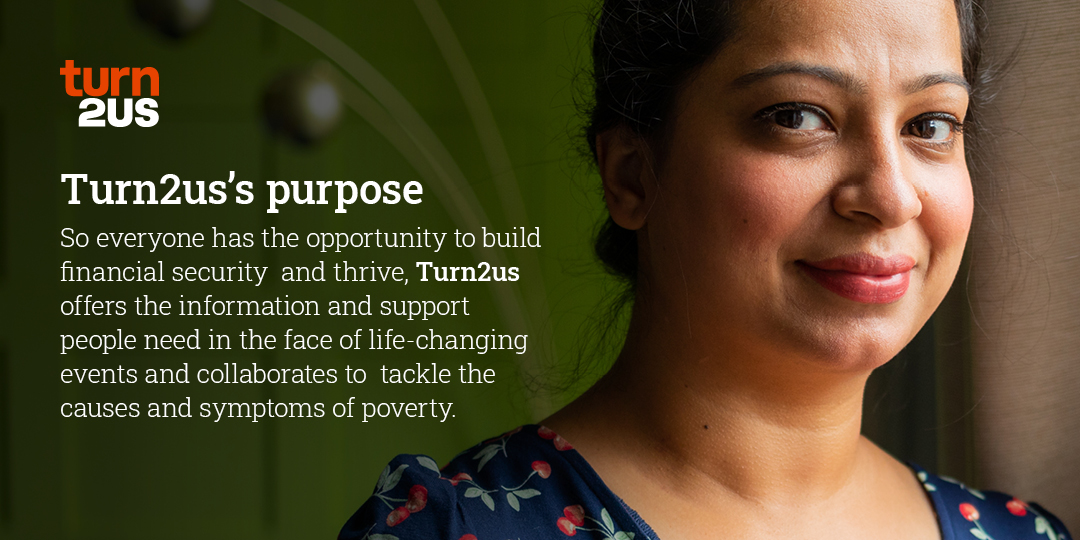
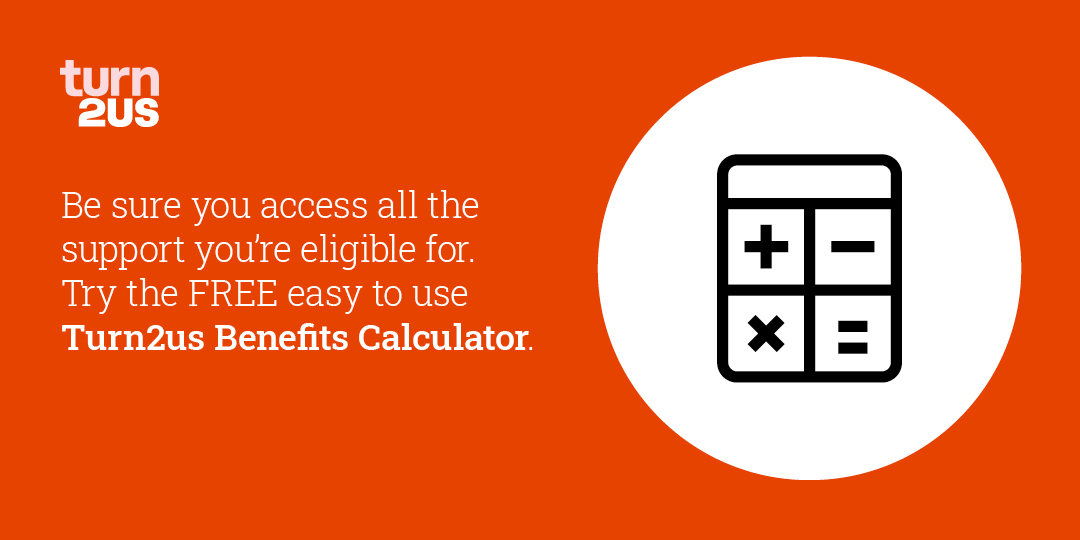
When did you last check your benefit entitlement?
It is important to check what benefits you are eligible for every six months to ensure you are receiving everything available to you.
This Benefits Calculator makes checking what money you have a right to easier than ever, taking just 10 minutes to complete a calculation.
There is a new feature on the free and easy-to-use Benefits Calculator. You will now be able to see a breakdown of how a Universal Credit result has been calculated. This means for people who are currently on Universal Credit, you can do a calculation and compare this to their Universal Credit award letter to identify any areas where they may be entitled to an uplift in the rate they receive.
In addition, the new tool will show:
- People renting what help they will get with Universal Credit for their rent.
- Calculator users what help they can get under UC for children; for disabilities; and caring for a disabled person.
- Calculator users how their earnings and other income is taken into account in the calculation.
- Calculator users if and how the benefit cap affects their Universal Credit entitlement
What makes the new Benefits Calculator great?
- The Turn2us Benefits Calculator was co-produced with people with lived experience of financial hardship. It is built by and for benefit claimants.
- The process is faster and more simple, so you will be able to complete a calculation more easily.
- You will be able to better understand your calculation as handy explanations are now included.
- It is now easier to return to your old calculation results.
- Turn2us have improved the ‘in work reckoner’ for people looking to return to work, but unsure whether they will be better off if they do.
- Turn2us can now do calculations for rough sleepers.
- If you are on legacy benefits, you can calculate whether you would be better off financially claiming Universal Credit.
To get a grant from us, you need to be registered with us for at least 6 months (see our information on how to register with ECC at the top of the website pages).
Turn2us website will tell you more about other grants you may be entitled to.
You can also do an online benefits calculation to see if you are getting all the benefits you are entitled to.


The London Taxicard Scheme gives subsidised rides to Enfield residents of all ages who have serious mobility problems or sight impairments.
This allows people with difficulty using public transport to get out and about in licensed taxis and private hire vehicles.
On the Enfield Council web site, search Concessionary Travel and London Taxicard Scheme.
- Form can be completed online for you or someone else.
- If you are applying for someone else, the form will ask for your details, then the applicant’s details.
- For filling in the form you will need date of birth and NI number of the applicant.
If your application is successful, the Council will require a photograph of the applicant.
They will contact you shortly after your application with details on how to upload this.
You will need to provide proof of identity, address and any benefits received by the applicant.
Some benefits or conditions automatically allow eligibility.
Enfield Council aims to process your application within twenty working days of receiving the information required.
Taxicard holders in Enfield can receive up to eight subsidised trips per month.
If you’re unable to complete the online application form, you can get help by visiting Enfield Civic Centre or Enfield libraries.
You can also contact Customer Services on 020 8379 1000 to arrange for Concessionary Travel to call you to help complete the form.
If you are a carer registered with Enfield Carers Centre we can help you to complete the forms. Call: 020 8366 3677 or email: info@enfieldcarers.org for more information.
Visit the gov.uk site and complete the online form.It is useful to have an email address that is regularly checked, as this is the quickest way for the Council to contact you.
Supporting documentation can be electronically attached by uploading from the computer on which you fill out the online form.
If possible, take photos of the required documents and transfer them to the computer you use for the form (email or plug in).
If you have a printer that can also scan, this is a good way to capture the documents.

A Blue Badge costs £10 in England and usually needs to be renewed every 3 years.
It can take 12 weeks for a decision to be made.
Contact Enfield Council for any questions or reassessments.
You will need:
- An electronic head shot photo of the person who will own the Blue Badge is also required to be uploaded.
- Proof of identity can be one of driving licence, passport or birth / marriage certificate
- Proof of address needs to be one of council tax bill or letter from a government department.
- Proof of any benefits e.g. PIP or DLA including the mobility assessment
You’ll also need to know:
- your National Insurance number (if you have one)
- the details of your current Blue Badge (if you’re re-applying)
- the medication for the person who will own the Blue Badge
- the names of medical professionals and clinics attended by the applicant
- the medical terms for the conditions suffered, ideally in correspondence from a clinic or medical professional.
Are you or the person you care for Eligible for a Blue Badge?
If you or they have:
Either: A physical diagnosis that means they are unable to walk short distances (0 to 80 meters, about 7 bus lengths); as they are physically unable to walk, experience extreme pain, server breathlessness or a high risk of falling.
Or: A cognitive/mental health diagnosis that means they lack danger awareness or have unpredictable behaviours that may cause risk to self or others, or experience significant psychological distress
And they have evidence of recent surgery, attendance at specialised clinics or a medical history of experiencing pain, breathlessness, falls, challenging behaviours and/or significant psychological distress to support application
Then they may meet the eligibility criteria.

If you/your loved one meets the above criteria call Enfield Carers Centre on 02083663677. If there is a reasonable chance the application will be successful, we will arrange for a member of our team to support you to apply.
If you/they do not meet the criteria, we will be unable to help you with an application.
There is also help available to complete online forms at the following libraries:
- Edmonton Green Library
- Enfield Town Library
- Ordnance Unity Centre Library
- Palmers Green Library
How to keep your Blue Badge safe
“Blue Badge companion permits” are available f that can be put inside a car when it is in disabled place outside a person’s house. It is proof of eligibility but useless to thieves.
You can apply for a Blue Badge Companion Permit from the Parking Shop in Crown Road, Enfield. You will need relevant documentation e.g. presentation of the Blue Badge, log book and a utility bill.
Look at the Enfield Council website for companion permits: Parking permits | Enfield Council
You can visit The Enfield Council Parking Shop Monday to Sunday, from 7am to 7pm or contact them on 020 3856 0036 (Monday to Sunday, from 7am to 7pm).
When parking elsewhere, you have to display the Blue Badge as usual, but you can buy a Blue Badge protector that locks onto the steering wheel, from car accessory shops e.g. Halfords.

You can call the Enfield Civic Centre on 020 8379 1000 between 9am and 5pm, Monday to Friday.
You can call the Enfield Adult Social Care team on 020 8379 1001 at any time 24 x 7.
Visit www.enfield.gov.uk to register for our Enfield Connected account.
This will enable you to –
- Pay your Council Tax simply and easily by direct debit;
- Check your balance and payment history;
- Inform us of a change in circumstances by editing your account profile;
- Apply for discounts.
You may be entitled to a Council Tax Hardship payment.
Click here below for further information and to make an application.
https://new.enfield.gov.uk/services/benefits/discretionary-payments/
You should click here to make a Housing on-line application.
You will need to provide your eviction notice details.
You should check the information your local authority have used to calculate your Benefit.
If you think this is wrong, you should click below to request a review of their decision. They will be able to look at your query quicker if they know why you think it is wrong and provide proof.
https://new.enfield.gov.uk/services/benefits/housing-benefit-and-council-tax-support/
You have one month to tell your local authority about a change.
If you tell your local authority more than a month after the change, they increase your benefit from the Monday after the date you told them.
https://new.enfield.gov.uk/services/benefits/housing-benefit-and-council-tax-support
You should let the relevant benefit department know your contractual arrangement, the hours worked and how often you receive your salary payments.
You need to list all your business income and expenses for the last 6-12 months, not just your self- assessment form.
Types of Direct Payments
A direct payment is money for direct services to the person being cared for, after assessment, to meet specific identified needs and aims. They have to be spent on theses services as detailed in the support plan. If the money is spent on anything else that is not identified in the support plan as a need then this would be considered a misuse of the payment and requests can be made for repayment.
As a carer, if you are managing a DP for the person that you care for, it is really important that you understand what the payment is for. If you are in doubt, always check with social services!
Case example: a mother was getting a direct payment for her adult son who had expressed, during his social care assessment, that one of the things he wanted to achieve was to go to football matches with his friends. For a long period of time she paid for his football tickets using his direct payment, this was considered a misuse of the direct payment and she was told to pay back thousands of pounds. The issue arose even though she had been submitting paperwork to the local authority detailing what the direct payment was being used for, every few months.
It was not considered the responsibility of social services to actually pay for her son to watch football matches. Her son was very disabled and so required support in the community and so the payments were meant to be used for someone to assist him physically to both get to and manage whilst at the football ground; this would then have been considered a valid spend.
Carers Direct Payment
This is a made to a carer, to meet the needs identified during a Carers Assessment where they cannot be met by other services such as Enfield Carers Centre. Carers Assessment at ECC are for those caring for someone over the age of 18 or via a joint assessment if caring for someone younger.
These payments are subject to means testing, however, these generally tend not to be as strict as those applied to service users; for example, only having savings over £23,250 would impact on a carer’s eligibility for receiving a direct payment but other things such as income and benefits are not taken into account. When the payment is awarded you are sent a letter telling you what it can be spent on. As with other DPs if they are not spent correctly a repayment may be requested.
Case Example
Mrs M is 56 and caring for her husband with Early Onset Dementia and admits during her Carers Assessment that she is unable to visit friends or get out to the hairdressers as she had to give up work and is financially unable to afford to go out or pay for replacement care for him.
She is awarded a Carers DP to pay for a weekly lunch with her friends and a monthly trip to the hairdressers.
She accesses ECC’s Replacement Care Scheme at no cost.
She keeps the receipts from the hairdressers and the restaurant and sends them to ECC after her annual review.
This is a correct use of her DP.
If Mrs M was using the money to pay her gas bill or to buy food shopping this would be incorrect and she would be asked to repay the money.
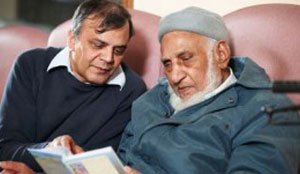

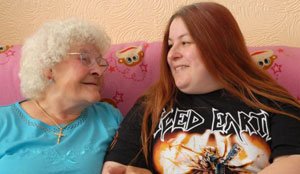
What Do We Pay Towards Social Care?
The amount that a person has to contribute towards their care, in Enfield, is calculated using a Contributions Policy. There are two policies one for if the person is receiving care in the community and another if they are in residential care.
Basically, a service user is allowed a Minimum Income, (the amount of which differs depending on age and circumstances), any costs directly related to their housing and an allowance for Disability Related Expenditure (DRE); any income in excess of this are considered available to be used towards social care contributions. At the time of writing if a person’s savings are under £14,250 then they are disregarded, for every £250 above this £1 a week is considered as income that can be used towards their contribution; if they have savings above £23,250 then they would be considered able to fully fund their own care needs.
Are the Carer’s Income/Savings Taken into Account?
No, it is only the service user’s means that should be considered when calculating contributions. If they have a joint account with another person then 50% of the money in that account would be allocated to them, unless it can be evidenced that the other person contributed more into that account and therefore the services user’s percentage should be reduced.
There are certain non-mean tested benefits that are not considered as income, such as mobility components of disability benefits; at time of writing Enfield does not consider the night care component as income. However, other benefits such as ESA, and the rest of care component of DLA, PIP and AA are considered income, which can be used towards paying for care.
If a person is in residential care then they are considered to only need a small allowance of money, most of their income would be considered available to be used towards care costs; if they own a property then the value of this will be considered also after 12 weeks of them being within residential care, unless there is someone still living in the property that falls within the category that allows the property to be disregarded.
Are there any other exemptions from paying contributions towards Social Care?
If the service user qualifies for Continuing Health Care (CHC), qualifies for Section 117 After-care under the Mental Health Act or has a diagnosis of Creutzfeldt-Jakob disease (CJD) then they do not have to contribute towards their social care.


The hidden cost of disability
In essence, any cost that is incurred as a direct result of someone’s disability should be considered disability-related expenditure. To use a very abstract example, if a carer drinks coffee and eats some custard cream biscuits to get an energy boost to support a disabled person at night this could be considered DRE, as the cost would not have been incurred if not for the fact a person had a disability.
The local authority might consider that drinking economy coffee and shop brand Custard Creams would have sufficed, rather than the luxury brands that were actually chosen to be consumed; if this were the case it would be reasonable to expect that the cost of the cheaper alternative to be disregarded as income that could be used towards social care contributions.
The key point to remember is that if the person did not have a disability the expense would not keep being incurred. If someone choose to buy new clothes then arguably they have made a choice to spend money and this would be paid using their income, not by taking this from their social care contributions; however, if a person with autism habitually ribs their clothing then the need for new clothes is not a choice, it is a cost relating to their needs, and so an allowance should be allowed as disability-related expenditure.
The local authority would expect evidence of spend, such as receipts covering a number of months; if these have not been collected then DRE could still be requested by offering to provide the receipts over the next few months so that some level of calculation is possible.
It would be expected that a person would contribute equally towards household costs, so submitting a gas bill and hoping that the full cost will be disregarded would be highly optimistic; there would also be some expectation that some costs would have occurred regardless of a person’s needs. For example, if a person feels the cold because of their condition, or is incontinent so requires extra clothing to be washed, it would be unrealistic that the full cost of heating and laundry would be disregarded, as it is only the additional costs incurred to meet disability-related need that would be taken into account.
Enfield Carers Centre run training sessions covering the approach you can take and where to get advocacy advice.
Any planned events are listed here.
A decision cannot be appealed unless the decision has first been reconsidered by a decision maker (unless it is a housing benefit decision). This process is called a Mandatory Reconsideration.
Why researching the benefit being appealed is essential
Getting support to challenge benefit decisions can be difficult because of limited services and high demands placed upon these. This is the reason why it is highly beneficial to be both informed and proactive in the best way to appeal benefits decisions. This does not only improve the chances of a successful challenge it would also give a support worker a head start, should you manage to access one, when they are working on your appeal; luckily there are resources online that can help you to understand benefit entitlements and regulations. Key links are provided at the end of this page.
One of the key points to remember is that an appeal is actually more to do with ensuring that benefit rules were followed correctly, and the claim was processed fairly, rather than just the belief that a decision is wrong. If a decision seems highly unfair but was correctly made in law then there is actually no grounds to appeal. This is why it is important that you understand the statutory rules of the benefit so that you can highlight why a decision was incorrectly made rather than just stating that the decision is disputed without giving clear reasons.
Benefit appeals are based on the date of decision, if you could walk for miles on the day of assessment but the next day fell over and broke your legs then your situation may have drastically changed but this would have little bearing when challenging a decision that you were not able to walk long distances, when assessed.
You would prepare for a boxing match, wouldn’t you?
Let’s use the example of boxing to highlight these points. If you lost a bout and wanted to challenge the decision then you would explain your reasons why you believe you was treated unfairly. Perhaps your opponent was kicking you, they were much bigger and heavier than you or the judges of the match were biased towards them; all these reasons would mean that the processes followed were not fair and so the final decision is questionable. You may find, as you research, more technical reasons why the decision was suspect; perhaps their boxing gloves were the wrong thickness or they hadn’t weighed in properly, again by not following the rules the validity of the decision is questionable.
However, arguing that the decision was wrong because they kept hitting you and wouldn’t let you hit them back, as unfair as this may seem, is not against the rules so would not result in any change in the outcome. Also if they cheated in their next bout, but hadn’t during yours this is not a valid reason to object to the decision; as only the circumstances at the time the decision was made would be taken into account.
It would be foolhardy to undertake a boxing match without preparation and the same is true of benefit appeals.
Key Points
These points may appear obvious but it is not uncommon for people appealing a PIP decision, for example, to keep saying that they are ill and to only provide evidence of their diagnosis when challenging a decision. Whereas PIP is a scoring based benefit that focuses on how a person can manage in a number of key activities, regardless of any condition or diagnosis that they may have. As their diagnosis is not actually being disputed but how their condition limits them within key activities, focusing on proving a diagnosis gains little and may overshadow other valid points that could be made.
If there is any decline in health, which happened after the original decision was made, this would be considered a change in circumstances rather than a grounds for appeal.
Arguing that a person needs more money, that a decision is felt to be unfair without providing any specific reasoning or that someone in a comparable situation gets the benefit so it should be awarded in this case too adds nothing to an appeal attempt. Whereas, focusing on the rules of that benefit and providing evidence and arguments why these were not applied correctly is essential.
Resources for challenging decisions:
Personal Independence Payments
Do I need a solicitor to make a power of attorney?
No, but it can be advisable depending on how complex the instructions from the donor are. Also if the person has business interests, properties or lots of assets then it might be best to seek specialist legal advice. Words that are used by people every day have a very specific meaning in law if the POA is disputed and a legal opinion is sought then the way instructions has been worded can be very important.
What types of instructions can the donor make?
This is where things can become complicated. The donor can stipulate if their attorneys can represent them at all times or only if they have lost mental capacity. They can state that there are multiple attorneys who can all act separately or must jointly agree on all, or certain types of decision. They may state that only one attorney can act at a time but nominate another individual to take over if a current attorney is unavailable to act; the donor can also make very detailed instructions if they believe this to be necessary to ensure their wishes are clearly understood.
However, if there is any ambiguity in how these instructions might be interpreted or if what is being asked is considered unreasonable, or impractical, then the Office of Public Guardians can refuse to register the document.
Things to consider
If the donor stipulates that a number of attorneys have to act jointly in decisions, and one of them is unable to continue to act, then the whole POA would be invalidated. As POAs are legal documents, there are some legalities to how they are used; for example, if you are married and your partner is your POA but you then get divorced then this would usually invalidate the POA; unless there are other attorneys who can act separately allowing for this former partner to be removed without issue.
As you can see things can have the potential to become complicated but if all you require is legally recognised authority to act on a person’s behalf, should they lose capacity, then a basic POA can be completed online at relatively low cost and with little specialist knowledge.
What are the benefits of having a POA?
If someone is deemed to lack capacity and there is no POA is in place then trying to pay bills or access their bank account on their behalf can be very problematic. If there are any disagreements about how care should be provided between the family and service providers there would be no one who could act officially as their voice; in these cases, an Independent Mental Capacity Advocate (IMCA) may be used in an effort to determine what they would have chosen.
As a person without capacity is unable to choose someone to act on their behalf becoming their representative would require going through the Court of Protection to become their Deputy. Deputyship hearings can be expensive, and the court will decide what types of representation will be permitted. Whereas a basic Power of Attorney can be drafted online for under a £100, much less if the donor has a limited income, and the donor chooses how much authority someone has to act on their behalf.
What is the role of the attorney?
An attorney should strive to make best interest decisions on behalf of the donor and act as they believe the donor would have acted. For example, if the donor always gave £50 a year to a Cat Charity then it would be acceptable that the attorney continues to do this on their behalf. However, if the attorney didn’t really like cats and so gave the money to a dog charity instead arguably they would then be acting based on their personal preference rather than considering what the donor would have wanted. The role of the attorney is to always try to act as the donor would have wanted, as well as to safeguard their best interests.
See HM Government website: Make, register or end a lasting power of attorney: Overview – GOV.UK (www.gov.uk)
See the NHS website: Giving someone power of attorney – NHS (www.nhs.uk)
FAQs – Young Carers
 The Student Money Manual is the essential guide to student finance and managing money at university.
The Student Money Manual is the essential guide to student finance and managing money at university.
It is aimed mainly at post-16/college students considering going to uni as well as first-year students but is relevant for all undergraduates. It covers everything from budgeting to student finance and fees to making your money stretch further as a student.
Find out more here: https://themoneycharity.org.
FREE counselling for 8-21 year olds. Without the wait.
Do you live in London? Are you looking for mental health support?
Whatever you’re experiencing, Stop.Breathe.Think. has partnered with Sported to provide essential mental health support to young people.
Through their service, young people who would otherwise be unable to afford it, can access up to six free online counselling sessions with one of their trained counsellors. With no wait times and a team of specialised counsellors ready to go.
The first step is to book in for a first intake appointment so that they can have an informal chat to get to know you better. All appointments will take place online at a time and day that best suits you.
Whatever you’re struggling with, talking to someone can really help. Nothing is too big or too small.
Please note to access counselling with Stop.Breathe.Think. you must:
- Be between the ages of 8-21 years
- Be able to provide them with an emergency contact detail who is over the age of 18, if you are under 16 this must be a parent or legal guardian
- You must not have accessed their service before, or currently be in counselling elsewhere
The service is modelled on the THRIVE Framework for child mental health provision.
See their website for information and how to book: www.stopbreathethink.org.uk/sported
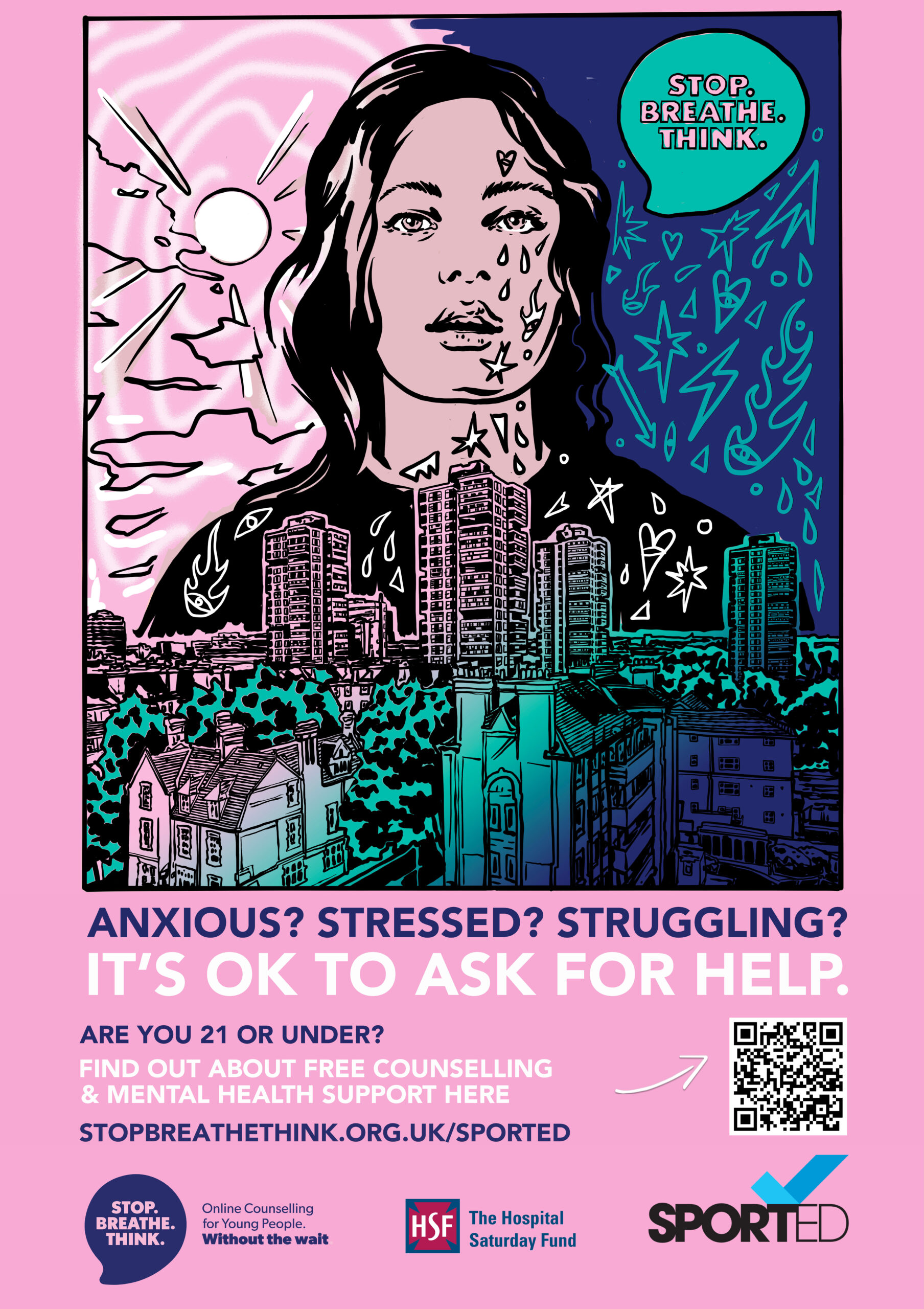
Please watch this short video to find out more about how they work with you: https://www.stopbreathethink.org.uk/wp-content/uploads/2023/04/SBT-Smaller-file.mp4?_=1
Young carers aged 16+ born in the UK between 1st September 2002 and 2nd January 2011 may have money that has been put aside for them through Child Trust Funds, which could now be worth £1000 or more.
Please see the document produced by The Share Foundation , or click this link for more information: https://www.sharefound.org/ 
You can search for your nearest Carers Service here: https://carers.org/help-and-info/carer-services-near-you
If there is no Young Carers service in your borough, the Carers Trust have a schools project to support you: https://youngcarersinschools.com/
You can sign up for Young Carers Alliance bulletins here: https://carers.org/young-carers-alliance/young-carers-alliance
You can sign up for the Young Carers Challenge here: https://youngcarersinschools.com/young-carers-challenge/
If your school supports children aged 12-16 years in London, you can refer young carers to the Renaissance Foundation: https://www.renaissance-
Support is available in Enfield
This leaflet is based on learning from Scotland’s A Menu for Change project and has been developed with support from these organisations.
The information on this leaflet was last updated on: 15/06/21
Step 1: What’s the Problem?
I suddenly have no money
- Lost job or reduced hours
- Money stopped
- Lost money
- Unexpected expense
- Disaster (e.g. flood or fire)
- Relationship breakdown
- Sanctioned (see option: 5)
See options 1, 2, 6
My money doesn’t stretch far enough
- Deciding between food, fuel, and mobile credit
- Low income
- Zero hours contract
- Statutory Sick Pay too low
- Facing redundancy
- Not sure if eligible for support
- Change of circumstance
See option 2
I am waiting on a benefit payment or advance
- New claim for benefit
- Payment delayed
- Waiting for decision
See options 1, 4
I have debt
- Rent or Council Tax
- Gas and electricity
- Payday loans
- Owe friends or family
- Benefit repayments
See option 3
Step 2: What Are Some Options?
OPTION 1 – Council Support Schemes
Anybody of working age and on a low income may be eligible for Universal Credit. Depending on your circumstances you may be entitled to claim housing benefit.
If you are on a low income and struggling to pay your council tax, please contact the Borough in which you live to apply for council tax support. If you are in receipt of the above and still struggling, you may be eligible for a discretionary payment. Find out more at: www.enfield.gov.uk/financialhardship
OPTION 2 – Maximise Your Income
Anyone who is struggling financially can get a benefit check and speak to an advisor for free and confidential advice. A benefit check can ensure that you are receiving all the money you’re entitled to, especially if your circumstances have changed recently. Speaking to an advisor could also help you find cheaper deals on things like gas and electricity and make sure you’re not missing out on things like free school meals.
OPTION 3 – Debt Advice
Debt can happen to anyone. Free advice and support can help you find ways to manage your debts and reduce how much you pay each month.
OPTION 4 – Benefit Advance
If you have made a new claim for benefit and are in financial hardship while you wait for your first payment, you may be able to get an advance to afford things like rent or food. It’s important to get advice before taking out an advance. Benefit advances must be paid back, and the money will be taken from your future benefit payments (a loan).
OPTION 5 – Hardship Payment
If you have been sanctioned, you may be able to request a hardship payment from the Jobcentre. Hardship payments are not always paid immediately, and they’re not available to everyone. Hardship payments of Universal Credit need to be paid back (a loan), but hardship payments of Job Seekers Allowance or Employment Support Allowance do not (not a loan).
OPTION 6 – Challenge a Decision
You can challenge a benefit decision if your benefit has been stopped / sanctioned / reduced / refused or you have been overpaid. Most benefit decisions need to be challenged within one month.
Step 3: Where Can I Get Help? for Free and Confidential Support
Enfield Council
Welfare Advice and Debt Support
A single point of contact for income and council debt issues, supporting residents to maximise income, pay council debts and remove barriers to work
www.enfield.gov.uk/financialhardship
Helps with options: 1 2 3
Housing Advisory Service
Housing advice and support for those who are homeless or at risk of being homeless
housingadviceservice@enfield.gov.uk
www.enfield.gov.uk/services/housing
Helps with option: 1
Citizens Advice
Citizens Advice Enfield
Free, accessible, quality advice with problems such as housing, employment, benefits, debts or immigration issues
0808 278 7837 (freephone)
www.citizensadviceenfield.org.uk/contact-us
Helps with options: 1 2 3 5 6
Citizens Advice National
Universal Credit Help To Claim: 0800 144 8848 (freephone)
Helps with options: 2 4
Debtline 0800 240 4420 (freephone)
Helps with option: 3
www.citizensadvice.org.uk
Enfield Debt Centre
Free debt counselling
07596 735 789
info@enfielddebt.org
www.sentlondon.co.uk/enfielddebtcentre
Help with options: 2 3 6
Christians Against Poverty
Debt management charity with two centres in Enfield
0800 328 0006 (freephone)
www.capuk.org
Help with options: 3
Other Debt and Benefit Support
Other Benefit Support
Enfield Connections
Advice and assistance for vulnerable adults with benefit enquiries, online form filling and more
0203 960 0129
info@enfieldconnections.org
Self-referral Form: http://bit.ly/EnfieldSelf
Enfield Carers Centre
Training, information and support for carers including advice on benefits, money management, and employment
www.enfieldcarers.org
0208 366 3677
info@enfieldcarers.org
Turn2us
Information and financial support to help people get back on track, including benefits calculator and grants you might be able to apply for
0800 802 2000 (freephone)
www.turn2us.org.uk
Visit www.gov.uk for a list of all benefits including disability benefits:
www.gov.uk/browse/benefits
Other Debt Support
Samafal
Employment services, money management courses and bilingual debt support
0208 3732722 | www.samafal.org.uk
Debt Free London
Expert advice to Londoners with problem debt. The advice pages can be translated into Polish, Bengali, Gujarati, Urdu and Spanish
0800 808 5700 (freephone)
www.debtfree.london
National Debt Line
Free and independent debt advice over the phone and online
0808 808 4000 (freephone)
www.nationaldebtline.org
Step Change
Expert debt advice and money guidance
0800 138 1111 (freephone)
www.stepchange.org
Take a look at the activities available at youth clubs in Enfield here: https://youthenfield.taptub.co.uk/
The 16-19 Bursary Fund from the Government, is available for students aged 16 to 19 to help with education-related costs.
What a bursary is for:
A bursary is money that you, or your education or training provider, can use to pay for things like:
- clothing, books and other equipment for your course
- transport and lunch on days you study or train
Find information on eligibility and how to apply for the 16-19 Bursary Fund in England on this link: https://www.gov.uk/1619-bursary-fund
What To Do Now is a social enterprise project set up to help young people looking for opportunities find opportunities, take a look at their website here: https://whattodonow.co.uk/
If you are a Young Carer interested in career opportunities, media training and opportunities, skills development workshops, or campaigning and engagement opportunities, you can sign up to the Carers Trust’s jobs board for Young Adult Carers: https://forms.office.com/e/UL1vtFweYp and view their current job opportunities here: https://carers.org/young-carers-futures-hub/young-adult-carers-jobs-opportunities
Every Parent and Child has a counselling service for children and young people aged 5-18 years.
You can contact Pauline Walker, the My Time Counselling Service Manager, on 07944 855297 / 020 8373 6243 or email pauline.walker@epandc.org.uk or find out more here: https://epandc.org.uk/
Stop.Breathe.Think. has partnered with Sported to provide essential mental health support to young people.
Through their service, young people (8 – 21 year olds) who would otherwise be unable to afford it, can access up to six free online counselling sessions with one of their trained counsellors.
The service is modelled on the THRIVE Framework for child mental health provision.
See their website for information and how to book: www.stopbreathethink.org.uk/sported
You can call Childline on 0800 1111 – lines are open 24 hours a day, 7 days a week, calls are free, and it won’t show on your bill.
There are other organisations that offer support over the phone or online, find more details here: https://enfieldcarers.org/
Follow us on social media to see what we have been up to!
Some of you may have noticed that we are now updating our Young Carers social media accounts more regularly!
Please follow us on Facebook, Twitter, and Instagram to find out more about Young Carers and EyPIC, and links to useful organisations.
See some of our other regular social activities in our latest Young Carers Activities leaflet.
We do extra activities in the school holidays – watch out for info on the Social Media sites.
A Young Carer is someone aged 18 or under who cares for a friend or family member who, due to illness, disability, a mental health problem or an addiction, cannot cope without their support.
A Young Carer might do some or all of these things:<
- Practical tasks, like cooking, housework, and shopping.
- Physical care, such as helping someone out of bed.
- Emotional support, including talking to someone who is distressed.
- Personal care, such as helping someone dress.
- Managing the family budget and collecting prescriptions.
- Helping to give medicine.
- Helping someone communicate.
- Looking after brothers and sisters.
For more information, see our page with further explanation about Young Carers.
We look forward to meeting and supporting you!
You can register with us online. Click here to open the form.
Please ask your parent or guardian to complete this for you, or another professional working with you (such as a teacher, social worker, or support worker) can fill out the same form, they just need to include their details in the ‘referrer’ section.
We support Young Carers in many different ways:
- Regular activities and trips where you can meet other Young Carers (both online and face-to-face)
- Homework Club (both online and face-to-face) where our volunteers can support you with your homework
- Support meetings in school where we can listen to you and work with you to find out how we can help
- Support and advice – if we can’t help, we will find someone who can
- Loan of digital devices such as a laptop or tablet to help you complete your schoolwork and attend our online activities
